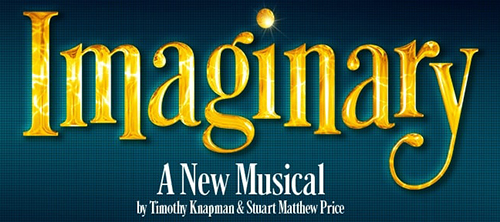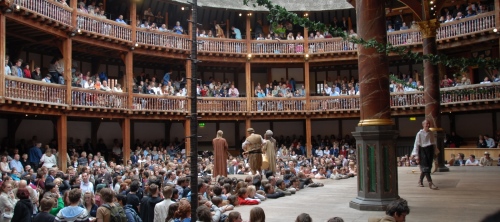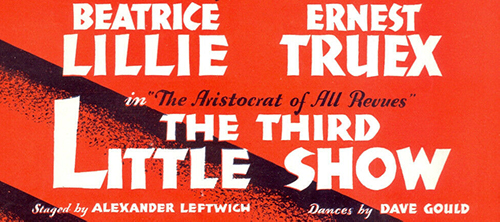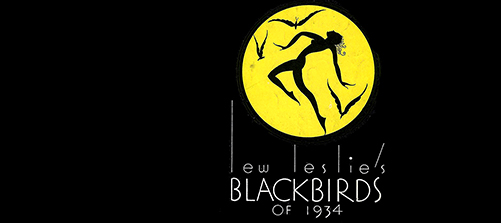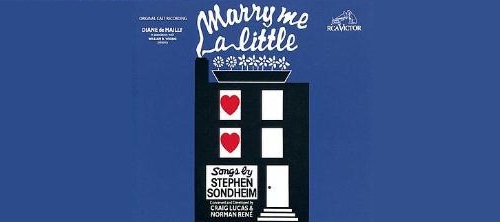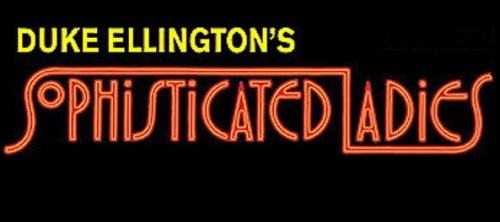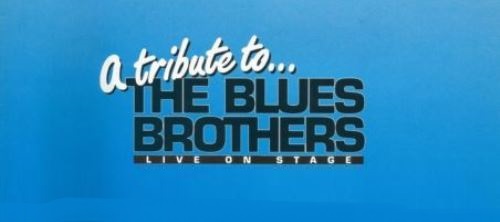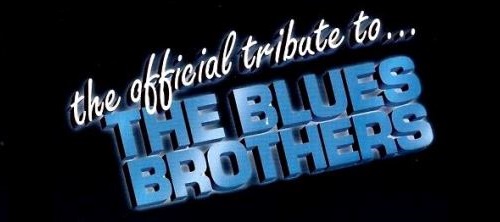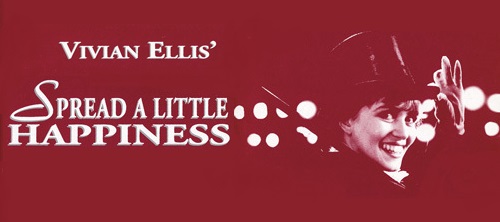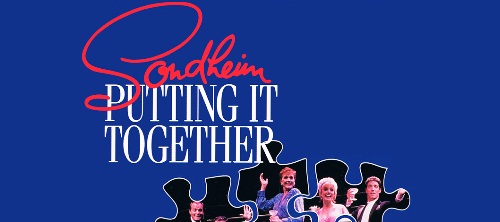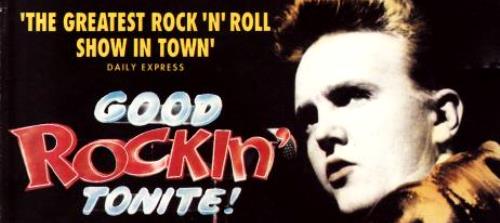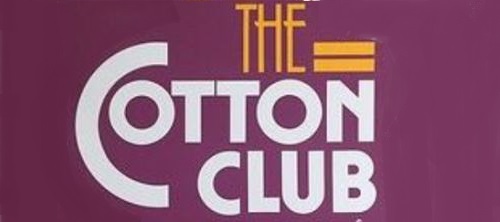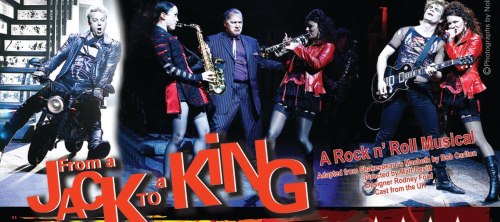Pas de biographie disponible.
Compositeur Musique additionelle Librettiste Parolier Metteur en scène Chorégraphe Producteur création Producteur version

Musical
Musique: *** Divers • Paroles: John Gay • Livret: John Gay • Production originale: 13 versions mentionnées
Dispo: Synopsis Génèse
Genèse: Origin and analysis The original idea of the opera came from Jonathan Swift, who wrote to Alexander Pope on 30 August 1716 asking "...what think you, of a Newgate pastoral among the thieves and whores there?" Their friend, Gay, decided that it would be a satire rather than a pastoral opera. For his original production in 1728, Gay intended all the songs to be sung without any accompaniment, adding to the shocking and gritty atmosphere of his conception.[7] However, a week or so before the opening night, John Rich, the theatre director, insisted on having Johann Christoph Pepusch, a composer associated with his theatre, write a formal French overture (based on two of the songs in the opera, including a fugue based on Lucy's 3rd act song "I'm Like A Skiff on the Ocean Toss'd") and also to arrange the 69 songs. Although there is no external evidence of who the arranger was, inspection of the original 1729 score, formally published by Dover Books, demonstrates that Pepusch was the arranger. The work took satiric aim at the passionate interest of the upper classes in Italian opera, and simultaneously set out to lampoon the notable Whig statesman Robert Walpole, and politicians in general, as well as the notorious criminals Jonathan Wild and Jack Sheppard. It also deals with social inequity on a broad scale, primarily through the comparison of low-class thieves and whores with their aristocratic and bourgeois "betters." Gay used Scottish folk melodies mostly taken from the poet Allan Ramsay's hugely popular collection The Gentle Shepherd (1725) plus two French tunes (including the carol 'Bergers, Ecoutez La Musique!' for his song 'Fill Every Glass'), to serve his hilariously pointed and irreverent texts. The renowned composer, John Christopher Pepusch, composed an Ouverture and arranged all the tunes shortly before the opening night at Lincoln's Inn Fields on 28 January 1728. However, all that remains of Pepusch's score are the Ouverture (with complete instrumentation) and the melodies of the songs with unfigured basses. Various reconstructions have been attempted, and a 1990 reconstruction of the score by American composer Jonathan Dobin has been used in a number of modern productions. Gay uses the operatic norm of three acts (as opposed to the standard in spoken drama of the time of five acts), and tightly controls the dialogue and plot so that there are surprises in each of the forty-five fast-paced scenes and 69 short songs. The success of the opera was accompanied by a public desire for keepsakes and mementos, ranging from images of Polly on fans and clothing, playing cards and fire-screens, broadsides featuring all the characters, and the rapidly published musical score of the opera. The play is sometimes seen to be a reactionary call for libertarian values in response to the growing power of the conservative Whig party. It may also have been influenced by the then-popular ideology of Locke that men should be allowed their natural liberties; these democratic strains of thought influenced the populist movements of the time, of which The Beggar's Opera was a part. The character of Macheath has been considered by critics as both a hero and an anti-hero. Harold Gene Moss, arguing that Macheath is a noble character, has written, "[one] whose drives are toward love and the vital passions, Macheath becomes an almost Christ-like victim of the decadence surrounding him." Contrarily, John Richardson in the peer-reviewed journal Eighteenth-Century Life has argued that Macheath is powerful as a literary figure precisely because he stands against any interpretation, "against expectation and illusion." The Beggar's Opera has had an influence on all later British stage comedies, especially on nineteenth century British comic opera and the modern musical. Adaptations As was typical practice of the time in London, a commemorative "score" of the entire opera was assembled and published quickly. As was common, this consisted of the fully arranged overture followed by the melodies of the 69 songs, supported by only the simplest bass accompaniments. There are no indications of dance music, accompanying instrumental figures or the like, except in three instances: Lucy's "Is Then His Fate Decree'd Sir" – one measure of descending scale marked "Viol." –; Trape's "In the Days of My Youth", in which the "fa la la chorus is written as "viol."; and the final reprieve dance, Macheath's "Thus I Stand Like A Turk", which includes two sections of 16 measures of "dance" marked "viol." (See the 1729 score, formerly published by Dover). The absence of the original performing parts has allowed many producers and arrangers to have free creative reign. The tradition of personalized arrangements, dating back at least as far as Thomas Arne's later 18th century arrangements, continues today, running the gamut of musical styles from Romantic to Baroque: Austin, Britten, Sargent, Bonynge, Dobin and other conductors have each imbued the songs with a personal stamp, highlighting different aspects of characterization. Following is a list of some of the most highly regarded 20th-century arrangements and settings of the opera. In 1920, the baritone Frederic Austin newly arranged the music (and also sang the role of Peachum) for the long-running production (1,463 performances) at the Lyric Theatre, Hammersmith. The Irish baritone Frederick Ranalow sang the role of Captain Macheath in every performance. In 1955 this version was recorded by conductor Sir Malcolm Sargent with John Cameron as Macheath and Monica Sinclair as Lucy. In 1928, on the 200th anniversary of the original production, Bertolt Brecht (words) and Kurt Weill (music) created a popular new musical adaptation of the work in Germany entitled Die Dreigroschenoper (The Threepenny Opera). In this work, the original plot is followed fairly closely (although the time is brought forward over a hundred years) but the music is almost all new. In 1948, Benjamin Britten created an adaptation with new harmonisations and arrangements of pre-existing tunes. Additional dialogue was written by the producer, Tyrone Guthrie. Peter Pears was the first singer of Macheath. The opera was made into a film version in 1953, and starred Laurence Olivier as Captain Macheath. In 1975, Czech playwright (and future president) Václav Havel created a non-musical adaptation. In 1977, the Nigerian Nobel Prize-winning playwright and dramatist Wole Soyinka wrote, produced and directed Opera Wonyosi (publ. 1981), an adaptation of both John Gay's The Beggar's Opera and Bertolt Brecht's The Threepenny Opera; most of his characters as well as some of the arias are from the two earlier plays. In 1981 Richard Bonynge and Douglas Gamley arranged a new edition for The Australian Opera (now Opera Australia). It was recorded the same year with Joan Sutherland, Kiri Te Kanawa, James Morris and Angela Lansbury. The opera was adapted for BBC television in 1983. This production was directed by Jonathan Miller and starred Roger Daltrey in the role of Macheath, Stratford Johns as Peachum, Gary Tibbs as Filch, and Bob Hoskins as the Beggar. The "happy" ending was changed so that Macheath is hanged instead of being reprieved. In 1984 in the play (and later film) A Chorus of Disapproval by Alan Ayckbourn, an amateur production of The Beggar's Opera is a major plot driver and excerpts are performed. In 1986 in the Brazilian musical film Ópera do Malandro (American title Malandro), by Ruy Guerra (director) and Chico Buarque (writer and composer). In 1990, American composer Jonathan Dobin[9][12] created a performing edition for the Ten Ten Players in New York City. The edition contains orchestrations for all 69 songs from the extant skeletal score and fleshes out the choruses, dances and intervening ritornelli in a baroque style. The New York Times wrote, "only a trace of Pepusch's score has survived… the music was reconstructed in a convincing period style by Jonathan Dobin, the ensemble's harpsichordist". In 1998, the all female Japanese troupe, Takarazuka Revue, produced an adaptation titled Speakeasy. The play was Maya Miki's retirement play. In 2008 the Sydney Theatre Company of Australia and Out of Joint Theatre Company co-produced a version entitled The Convict's Opera written by Stephen Jeffreys and directed by Max Stafford-Clark. This version is set aboard a convict ship bound for New South Wales, where convicts are putting on a version of The Beggar's Opera. The lives of the convicts partly mirror their characters in The Beggars' Opera, and modern popular songs are performed throughout the piece. 'The Convict's Opera' began touring the UK in early 2009. Vanishing Point created a modern production of The Beggar's Opera in 2009 for The Royal Lyceum Theatre and Belgrade Theatre, Coventry, set in a near-future apocalypse world. It features music from A Band Called Quinn. Beginning on 27 November 2010, an adaption of The Beggar's Opera, called "One Wife Too Many" was staged at the Nowra Players in regional New South Wales, Australia. In July/August 2011 YAP Theatre Company staged a new adaptation of The Beggar's Opera in Swindon and London, UK, with an updated script by Matt Fox and a new musical arrangement by Jessie Thompson. The original opera was performed in an 18th century setting at the Open Air Theatre, Regent's Park in summer 2011, in a production directed by Lucy Bailey.
Résumé:
Création: 29/9/1728 - Lincoln's Inn Fields Theatre (Londres) - représ.
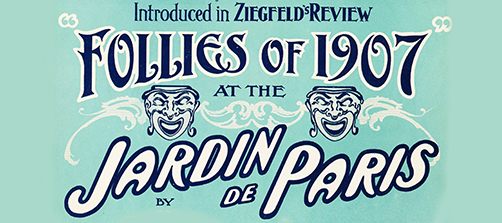
Musical
Musique: *** Divers • Paroles: *** Divers • Livret: *** Divers • Production originale: Florenz Ziegfeld • 1 version mentionnée
Dispo: Commentaire Liste chansons
The first in the annual series of revues produced by Florenz Ziegfeld.
Genèse:
Résumé:
Création: 8/7/1907 - Jardin de Paris (Broadway) - 79 représ.
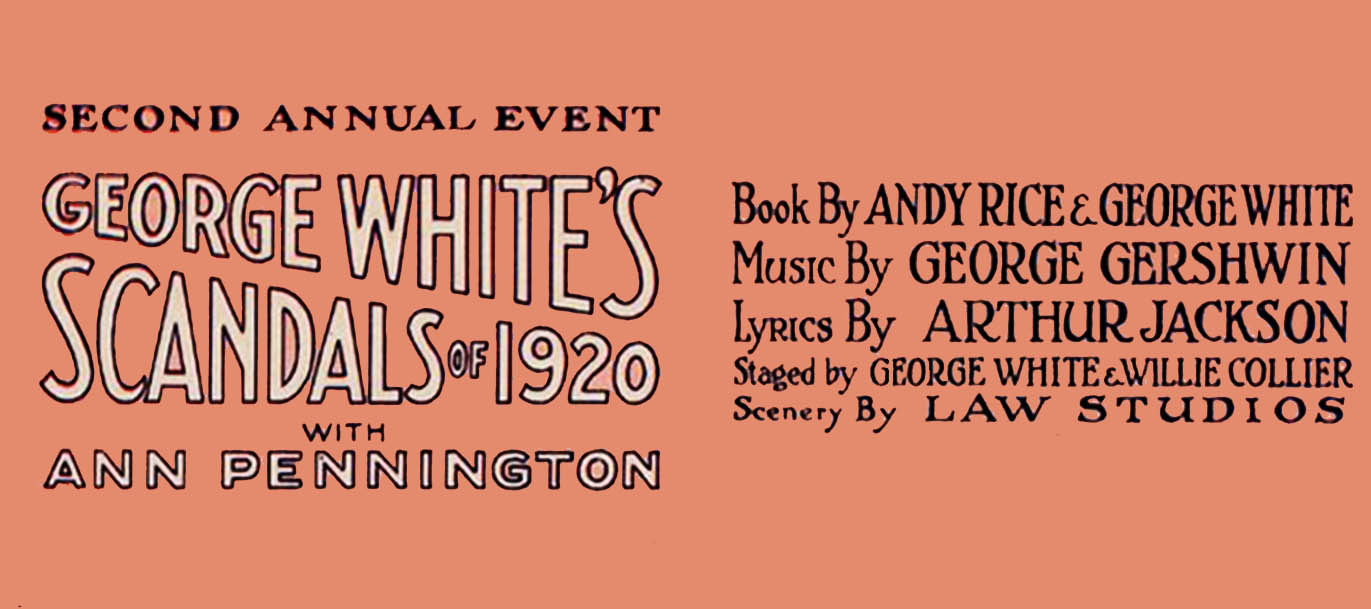
Revue
Musique: *** Divers • Paroles: *** Divers • Livret: *** Divers • *** Revue • Production originale: 13 versions mentionnées
Dispo:
Les George White' Scandals sont une longue série de revues de Broadway produites par George White de 1919 à 1939, inspirées des Ziegfeld Follies. Les Scandals ont lancé la carrière de nombreux artistes, y compris W. C. Fields, les Three Stooges, Ray Bolger, Helen Morgan, Ethel Merman, Ann Miller, Eleanor Powell, Bert Lahr et Rudy Vallée. Louise Brooks, Dolores Costello, Barbara Pepper et Alice Faye ont lancé leur show-business en tant que filles richement habillées (ou sous-habillées) se pavanant à la "Scandal Walk". Une grande partie des premières compositions de George Gershwin parut dans les éditions 1920-24 de Scandals. The Black Bottom, dansé par la star des Ziegfeld Follies, Ann Pennington et Tom Patricola, a déclenché un engouement pour la danse américaine.
Genèse:
Résumé:
Création: 2/6/1919 - Liberty Theatre (Broadway) - 128 représ.
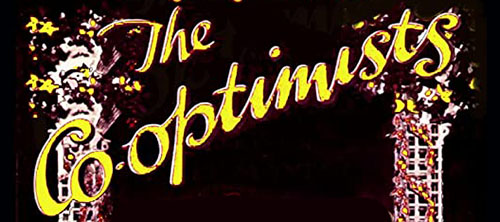
Revue
Musique: *** Divers • Paroles: *** Divers • Livret: *** Revue • Production originale: 1 version mentionnée
Dispo: Résumé
Genèse:
Résumé: Le programme se composait de nombreux courts numéros très différents dans le style revue.
Création: 27/6/1921 - Royalty Theatre (Londres) - représ.

Revue
Musique: *** Divers • Cole Porter • Paroles: *** Divers • Cole Porter • Dorothy Fields • E.Y. Harburg • Livret: Production originale: 1 version mentionnée
Dispo:
The Vanderbilt Revue était une soirée intime qui a ouvert et fermé en deux semaines et qui n’a pas fait beaucoup d’impression. Le consensus était qu’il manquait un point de vue et incluait du matériel original qui ne convenait pas à une revue, et donc même la présence de Lulu McConnell et du nouveau venu généralement bien reçu Joe Penner (et sa routine Wanna Buy a Duck?) n’a pas pu surmonter l’approche totalement éparpillée de la soirée pour les sketches, les chansons et les danses, 29 numéros en tout, qui étaient de vingt auteurs, paroliers et compositeurs différents.
Genèse:
Résumé:
Création: 5/11/1930 - Vanderbilt Theatre (Broadway) - 13 représ.
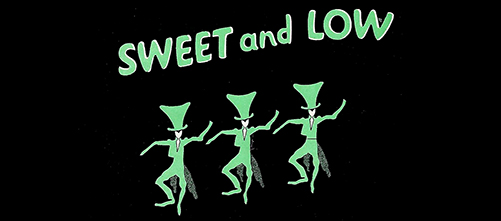
Musical
Musique: *** Divers • Harry Warren • Vivian Ellis • Paroles: *** Divers • Livret: David Freedman • Production originale: Billy Rose • 1 version mentionnée
Dispo: Génèse
"Sweet and Low" est une revue musicale produite par Billy Rose et mettant en vedette James Barton, Fanny Brice, George Jessel et Arthur Treacher. Il présente des sketches de David Freedman et des chansons de divers compositeurs et paroliers.
Genèse: The 1930 Broadway production was directed by Alexander Leftwich and choreographed by Danny Dare, with additional dances staged by Busby Berkeley. Scenic design was by Jo Mielziner. It ran for a week at the Majestic Theatre in Brooklyn before opening on November 17, 1930 at Chanin's 46th Street Theatre, where it ran for 184 performances. Although it rarely sold out, Rose transferred it to the 44th Street Theatre, where it was more successful at the box office.
Résumé:
Création: 17/11/1930 - Richard Rodgers Theatre (Broadway) - 184 représ.

Revue
Musique: *** Divers • Irving Berlin • Paroles: *** Divers • Irving Berlin • Livret: *** Divers • Production originale: 1 version mentionnée
Dispo: Résumé
Genèse:
Résumé: A musical revue in two acts, 33 scenes. Sketches by Heywood Broun and Milton Raison. Music by Irving Berlin, Vernon Duke, among others. Dances by Johnny Boyle.
Création: 21/7/1931 - George M. Cohan's Theatre (Broadway) - 87 représ.

Revue
Musique: *** Divers • Paroles: *** Divers • Livret: *** Divers • Production originale: Charles Dillingham • 1 version mentionnée
Dispo: Génèse Liste chansons
Première revue New Faces.
Genèse: Leonard Sillman (9 mai 1908 - 23 janvier 1982) était un producteur américain de Broadway. Né à Détroit, Michigan, le 9 mai 1908, il était le frère de June Carroll, le beau-frère de Sidney Carroll et l’oncle de Steve Reich et Jonathan Carroll. Il a produit une série de revues musicales, Leonard Sillman’s New Faces, qui a présenté de nombreuses grandes stars au public de Broadway, telles que Henry Fonda, Eartha Kitt, Imogene Coca, Inga Swenson, John Lund, Van Johnson, Carol Lawrence, Madeline Kahn, Paul Lynde et Maggie Smith. Des versions de New Faces ont été produites en 1934, 1936 (adapté dans le film New Faces of 1937), 1943, 1952 (adapté dans le film New Faces), 1956, 1962 et 1968. Les tout premiers New Faces en 1934 comprenaient les acteurs Henry Fonda, Imogene Coca et Frances Dewey Wormser. L’auteur-compositeur Arthur Siegel, qui a contribué à de nombreuses chansons de la série et de l’émission de radio New Faces, a décrit la philosophie de Sillman: «Il croyait qu’une revue devait être un pot-pourri, une bouillabaisse, dans laquelle il y en avait pour tous les goûts. Le rythme était très important. Il ne voulait pas donner au public l’occasion de réfléchir à ce qu’il venait de voir. La musique devait être non-stop.»
Résumé:
Création: 15/3/1934 - Helen Hayes Theatre (Broadway) - 149 représ.
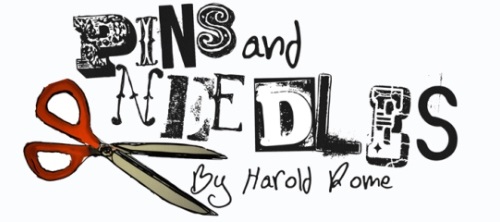
Musical
Musique: Harold Rome • Paroles: Harold Rome • Livret: *** Divers • Production originale: 3 versions mentionnées
Dispo: Résumé Génèse Liste chansons
The International Ladies Garment Workers Union used the Princess Theatre in New York City as a meeting hall. The union sponsored an inexpensive revue with ILGWU workers as the cast and two pianos. Because of their factory jobs, participants could rehearse only at night and on weekends, and initial performances were presented only on Friday and Saturday nights.[1][2] The original cast was made up of cutters, basters, and sewing machine operators. Pins and Needles looked at current events from a pro-union standpoint. It was "lighthearted look at young workers in a changing society in the middle of America's most politically engaged city."[2] Skits spoofed everything from Fascist European dictators to bigots in the DAR. Word-of-mouth was so enthusiastically positive that the cast abandoned their day jobs and the production expanded to a full performance schedule of eight shows per week. New songs and skits were introduced every few months to keep the show topical. According to John Kenrick, Pins and Needles "is the only hit ever produced by a labor union, and the only time when a group of unknown non-professionals brought a successful musical to Broadway."
Genèse: Productions Originally written for a small theatrical production, the first production of Pins and Needles was directed by Samuel Roland. After a two week professional run, it was adapted for performances by members of the then-striking International Garment Workers' Union as an entertainment for its members. Because Roland was associated with left-wing causes, he was asked by ILGWU president David Dubinsky to withdraw. The better-known ILGWU production was directed by Charles Friedman and choreographed by Benjamin Zemach. It opened on November 27, 1937 at the Labor Stage Theatre and then transferred to the Windsor Theatre on January 1, 1939, finally closing on June 22, 1940 after 1108 performances. The cast included Harry Clark. The production was directed by the African-American dancer Katherine Dunham. The Roundabout Theatre Company produced a revival Off-Broadway at the Roundabout Stage 1 Theatre in 1978, which ran for 225 performances. The Jewish Repertory Theatre presented a concert in 2003, to include songs and sketches from all versions of the show. Pins and Needles was presented in the UK for the first time at the Cock Tavern Theater in Kilburn, London in November and December 2010. The production was directed by Rachel Grunwald and received positive reviews from the theatre press.
Résumé: From 1937 to 1941, Pins & Needles was a hit musical comedy revue running on Broadway. But this was no ordinary Broadway musical: It was written for and performed by members of The International Ladies Garment Workers' Union. With songs by Harold Rome, ILGWU members sang out for all the people fighting for jobs, housing, a minimum wage, immigrants' rights and economic justice, and performed sketches that satirized the European fascists and the U.S. right-wing reactionaries who rose up against FDR's New Deal.
Création: 27/11/1937 - Princess Theatre (Broadway (Off)) - représ.
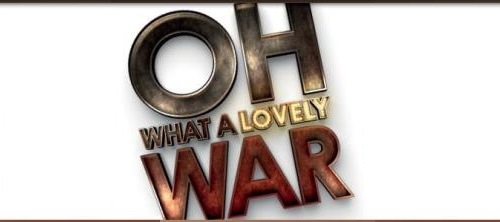
Musical
Musique: *** Divers • Paroles: *** Divers • Livret: *** Divers • Production originale: 3 versions mentionnées
Dispo: Résumé Synopsis Génèse Liste chansons
Genèse: The play originated with Charles Chilton's radio musical The Long Long Trail, composed of World War I songs and named for the popular music hall song "There's A Long Long Trail A-Winding." The piece was a radio documentary that used facts and statistics, juxtaposed with songs of the time, as an ironic critique of the reality of the war. The musical premiered at the Theatre Royal Stratford East on 19 March 1963; according to Charles Chilton, Joan Littlewood was unconvinced until the show actually opened.[citation needed] The official censor did not grant permission for performance in the West End until Princess Margaret attended a performance and commented to the Lord Chamberlain, Lord Cobbold, that "What you've said here tonight should have been said long ago, don't you agree, Lord Cobbold?"; at this point the transfer was more or less assured despite the objections of the family of Field Marshal Haig. It was an ensemble production featuring members of the theatre's regular company, which included Brian Murphy, Victor Spinetti and Glynn Edwards, all of whom played several roles. The sets were designed by John Bury. The production subsequently transferred to Wyndham's Theatre in June of the same year. The production was a surprise hit, and the musical was adapted by the BBC for radio several times. The musical premiered in the United States on Broadway at the Broadhurst Theatre on 30 September 1964 and closed on 16 January 1965 after 125 performances. It was seen there by actor and former subaltern Basil Rathbone, who wrote to Charles Chilton that "we were duped, it was a disgusting war".[citation needed] Directed by Littlewood, the cast featured Spinetti and Murphy, plus Barbara Windsor. It received four Tony Award nominations, including Best Musical, and Tony Award for Best Featured Actress in a Musical (for Windsor). Spinetti won the Theatre World Award.
Résumé: A chronicle of the horrors of the First World War, told through songs and original material from the time. The Master of Ceremonies leads a colourful cast through a series of darkly humourous and often moving scenes with songs including 'Keep the Home Fires Burning', 'It's a Long Way to Tipperary', and 'Goodbye-ee'.
Création: /3/1963 - Theatre Royal Stratford East (Londres) - représ.
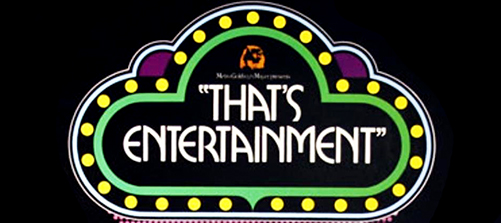
Film
Musique: *** Divers • Paroles: *** Divers • Livret: *** Divers • Production originale: 1 version mentionnée
Dispo: Génèse Liste chansons
That's Entertainment! is a 1974 American compilation film released by Metro-Goldwyn-Mayer to celebrate the studio's 50th anniversary. The success of the retrospective prompted a 1976 sequel, the related 1985 film That's Dancing!, and a third installment in 1994. Over the years, under the leadership of Louis B. Mayer and others, Metro-Goldwyn-Mayer has produced a series of musical films whose success and artistic merit remain unsurpassed in motion picture history. There were literally thousands of people - artists, craftsmen and technicians - who poured their talents into the creation of the great MGM musicals. This film is dedicated to them. — Opening titles of That's Entertainment!
Genèse: Compiled by its writer-producer-director, Jack Haley Jr., under the supervision of executive producer Daniel Melnick, the film turned the spotlight on MGM's legacy of musical films from the 1920s through the 1950s, culling dozens of performances from the studio's movies, and featuring archive footage of Judy Garland, Eleanor Powell, Lena Horne, Esther Williams, Ann Miller, Kathryn Grayson, Howard Keel, Jeanette MacDonald, Cyd Charisse, June Allyson, Clark Gable, Mario Lanza, William Warfield, and many others. Various segments were hosted by a succession of the studio's legendary stars: Frank Sinatra, Gene Kelly, Fred Astaire, Peter Lawford, Debbie Reynolds, Bing Crosby, James Stewart, Elizabeth Taylor, Mickey Rooney, Donald O'Connor, and Liza Minnelli, representing her mother Judy Garland. The host segments for That's Entertainment! constitute some of the final footage to be captured on the famous MGM backlot, which appears ramshackle and rundown in 1973, because MGM had sold the property to developers and the sets were about to be demolished. Several of the hosts, including Bing Crosby, remark on the crumbling conditions during their segments; the most notable degradation can be seen when Fred Astaire revisits the ruins of a train station set that had been used in the opening of The Band Wagon two decades earlier, and when Peter Lawford revisits exteriors used in his 1947 musical Good News. The title of the film derives from the anthemic song "That's Entertainment!", by Arthur Schwartz and Howard Dietz, introduced in the 1953 MGM musical The Band Wagon. The film title is usually expressed with an exclamation mark, but in some contexts the punctuation is dropped, as in the movie poster.
Résumé:
Création: 17/5/1974 - *** Film (***) - représ.
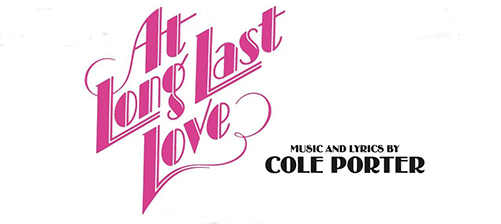
Film
Musique: Cole Porter • Paroles: *** Divers • Livret: Peter Bogdanovich • Production originale: 1 version mentionnée
Dispo: Résumé Génèse
At Long Last Love is a 1975 American jukebox musical comedy film written, produced, and directed by Peter Bogdanovich. It stars Burt Reynolds, Cybill Shepherd, Madeline Kahn, and Duilio Del Prete as two couples who each switch partners during a party and attempt to make each other jealous. Featuring 18 songs with music and lyrics by Cole Porter, Bogdanovich was inspired to make a musical with the composer's songs after Shepherd gave him a book of his songs. All of the musical sequences were performed live by the cast, since At Long Last Love was meant by Bogdanovich to be a tribute to 1930s musical films like One Hour With You, The Love Parade, The Merry Widow and The Smiling Lieutenant that also filmed the songs in the same manner.
Genèse: Production At Long Last Love was Bogdanovich's first musical film, as well as the first motion picture he wrote by himself. He got the idea to a musical film of Cole Porter songs when his then-girlfriend Cybill Shepherd gave him a book of songs by the composer. "His lyrics conveyed a frivolous era," said the director. "With a kind of sadness, but very subtle... Cole Porter lyrics are less sentimental than, say, Gershwin and more abrasive... Gershwin was the greater musician. But Cole was a better lyricist and I was more interested in lyrics than music." When he heard the lyrics for "I Loved Him", with its reversal of emotion and wry lyric, he decided to use that as the finale and "worked back from there". The film was originally called Quadrille, and was equally weighted between the four lead characters. In September 1973, Bogadanovich announced the cast would be Cybill Shepherd, Madeline Kahn, Ryan O'Neal, and the director himself.[8] Shepherd had recorded an album of Cole Porter songs paid for by Paramount called Cybill Does It... to Cole Porter. By March 1974, Bogdanovich had decided to not act, and replaced himself with Elliott Gould, who had experience in musical theatre. Gould and O'Neal dropped out. By March 1974 Burt Reynolds had replaced Gould. Bogdanovich says he was "talked into" using Burt Reynolds, who wanted to try a musical. "The whole joke that he's kind of a nice fellow, good looking, not particularly good at dancing. He can't dally with the girl. He's rather ineffectual." He gave the other male lead to Duilio Del Prete who had just been in Bogdanovich's Daisy Miller and who the director thought was going to be a big star. In March 1974, Fox agreed to finance the film. Filming started August 1974. Resisting the urge to shoot another film in black and white, Bogdanovich had it art-directed as "Black and White in Color". He wanted the characters to feel like they were having a conversation using "greeting cards in the form of songs" like "they didn't know what to say to each other." The movies of Ernst Lubitsch with Jeanette MacDonald and Maurice Chevalier such as One Hour With You, The Love Parade, The Merry Widow and The Smiling Lieutenant influenced Bogdanovich to have all of the song sequences be filmed live, as it would recreate the "kind of sad, funny, melancholy, silly," and "spontaneous" vibe of the films. However, all of the lead actors, especially Reynolds "weren't accomplished singers or dancers," resulting in a lot of delays and mess-ups during the shooting process. In addition, the cast had a tough time performing the sequences due to having to perform them in one take and deal with wonky receiver systems in order to listen to the instrumentals. Bogdanovich later said he "was very arrogant" during the making of the film, "but that arrogance was bought out of a frantic insecurity. I knew it was so possible I was wrong that I became tough about insisting that I was right." Versions The studio rushed the film into release, with only two previews in San Jose (which Bogadanovich recalled being "a total disaster") and Denver. Bogdanovich made more changes to the film to have it be more focused on Reynolds' character due to pressure from the studio, and the final version was never previewed. Following a premiere at 20th Century-Fox Studios in Los Angeles on March 1, 1975, the film opened March 6 at Radio City Music Hall to scathing reviews and poor box office returns. The chorus of critical attacks prompted Bogdanovich to have an open letter of apology printed in newspapers throughout the U.S. Bogdanovich later said once the film was released "I realized how I should have cut it after that and I immediately did cut it, they let me recut and I think I paid for that, and that version was then shown on television and that's the version that all release prints have been ever since. That was quite different from the opening version. Very different, but unfortunately it was too late." The director has stated many people who first saw it in this version did not react so badly to the film.
Résumé: Four socialites unexpectedly clash: heiress Brooke Carter runs into the Italian gambler Johnny Spanish at the race track while playboy Michael O. Pritchard nearly runs into stage star Kitty O'Kelly with his car. Backstage at Kitty's show, it turns out she and Brooke are old friends who attended public school together. The foursome do the town, accompanied by Brooke's companion Elizabeth, who throws herself at Michael's butler and chauffeur Rodney James. The four friends change partners at a party, where Brooke and Michael step outside behind Kitty and Johnny. In an effort to make the others jealous, Kitty, Johnny, Brooke, Michael, Elizabeth and Rodney begin their romance.
Création: 1/3/1975 - *** Film (***) - représ.
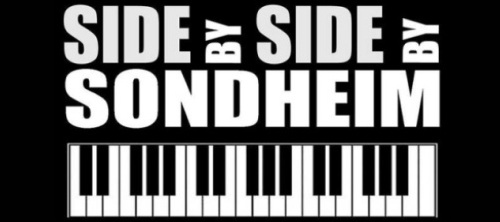
Musical
Musique: Jule Styne • Leonard Bernstein • Richard Rodgers • Stephen Sondheim • Paroles: Stephen Sondheim • Livret: *** Divers • Production originale: 12 versions mentionnées
Dispo: Commentaire Génèse Liste chansons
Genèse: The revue had its première on May 4, 1976 at London's Mermaid Theatre, where it ran for 59 performances. It subsequently transferred to Wyndham's Theatre and then the Garrick for a grand total of 806 performances. Ned Sherrin directed, but Sondheim also worked with the cast and made many suggestions. Hal Prince produced the Broadway version, and persuaded Actors' Equity Association to allow the original British cast to transfer with the show. The production, again directed by Sherrin, opened on April 18, 1977 at the Music Box Theatre, and later transferred to the now-demolished Morosco Theatre. Between the two venues, it ran for a total 384 performances and 6 previews. It is one of the few shows to have the distinction of its entire cast being nominated for Tony Awards (Best Featured Actor in a Musical and Best Featured Actress in a Musical). A subsequent 1978 U. S. national tour starred Martin, Larry Kert, Barbara Heuman, and Hermione Gingold as the Narrator. A London West End revival opened at the Venue Theatre on May 1, 2007, and closed June 23, 2007, after 62 performances and 4 previews. The cast included Abbie Osman, Alasdair Harvey and Josie Walker, with rotating narrators. The musical was directed by Hannah Chissick with musical staging by Adam Cooper. International Numerous international productions have been mounted, including a production in Ireland in 1996 which starred Rebecca Storm, Brendan O'Carroll as the Narrator with Susie Fenwick, Enda Markey and Sarah-Jane Bourne. A production at the Seymour Centre in Sydney, Australia ran in 2011, and starred Amelia Cormack, Margi De Ferranti, Enda Markey and Jessica Rowe as the narrator. This production toured Australia in 2012, with Rachael Beck and then Lucy Maunder replacing Amelia Cormack; Michael Falzon replacing Markey and Geraldine Turner replacing De Feranti. On Friday 20 April 2012, a gala performance of the show took place at Theatre Royal, Sydney. Headlined by Ruthie Henshall and starring an array of Australia's leading musical theatre talent including Rachael Beck, Geraldine Turner, Peter Cousens, Enda Markey - who also produced, Lucy Durack, Ben Lewis, Stephen Mahy, Amanda Muggleton, Michael Falzon, Virginia Gay and many more.
Résumé:
Création: 4/5/1976 - Mermaid Theatre (Londres) - représ.
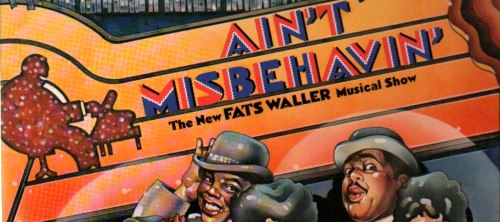
Musical
Musique: *** Divers • Paroles: *** Divers • Livret: Murray Horweitz • Richard Jr Maltby • Production originale: 9 versions mentionnées
Dispo: Synopsis Génèse Liste chansons
Genèse: Ain't Misbehavin opened in the Manhattan Theatre Club's East 73rd Street cabaret on February 8, 1978. The cast included Irene Cara, Nell Carter, André DeShields, Armelia McQueen, and Ken Page and was staged by Maltby. The New York Times reviewer wrote: "The show moves with the zing and sparkle of a Waller recording-filled with bright melodies and asides." Its reception was such that it was decided to develop it into a full-scale production. The musical opened on Broadway at the Longacre Theatre on May 9, 1978, and transferred to the Plymouth Theatre and then to the Belasco Theatre and closed on February 21, 1982 after 1604 performances and fourteen previews. Maltby was the director, with musical staging and choreography by Arthur Faria. The original cast featured Nell Carter, André DeShields, Armelia McQueen, Ken Page, and Charlayne Woodard. Luther Henderson adapted Waller's music for the revue and served as the production's original pianist. Replacements later in the run included Debbie Allen, Yvette Freeman, Adriane Lenox, and Alan Weeks. An original cast recording was released by RCA Victor. The West End production opened on March 22, 1979 at Her Majesty's Theatre. DeShields and Woodard were joined by Evan Bell, Annie Joe Edwards, and Jozella Reed. It was revived in London in 1995 at the Tricycle Theatre and then the Lyric Theatre, with Debby Bishop, Dawn Hope, Melanie Marshall, Sean Palmer, and Ray Shell. A London revival cast recording was released by First Night. On June 12, 1982, NBC broadcast the revue with the original Broadway cast. A Broadway revival with the same director, choreographer, and cast as the original 1978 production opened on August 15, 1988 at the Ambassador Theatre, where it ran for 176 performances and eight previews. Frank Rich, in his review for The New York Times, wrote "In their scrupulous re-creation of the Fats Waller show that first electrified Broadway a decade ago, the original cast and creators have conjured the same between-the-wars dream world as before... Though almost bereft of dialogue, this musical anthology expands beyond its form to become a resurrection of a great black artist's soul. Perhaps the key to the musical's approach, as conceived by the director Richard Maltby Jr., is its willingness to let Waller speak simply and eloquently for himself, through his art but without show-biz embroidery."[4] In 1995, a national tour starred the Pointer Sisters, Eugene Barry-Hill, and Michael-Leon Wooley. Although it never reached Broadway as originally planned, a recording of highlights from the show was released by RCA. Beginning in November 2008 and lasting until at least May 2009, season two American Idol contestants Frenchie Davis, Trenyce Cobbins and winner Ruben Studdard starred in the 30th anniversary national tour of the show. A new cast recording has been made and is available on the Rhino label.
Résumé:
Création: 8/2/1978 - Manhattan Theatre Club (Broadway (Off-Off)) - représ.
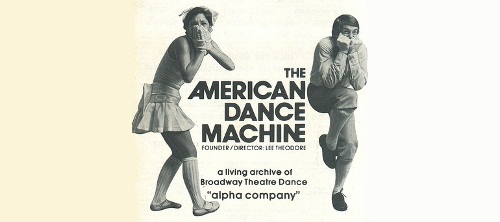
Musical
Musique: *** Divers • Paroles: *** Divers • Livret: Lee Becker Theodore • Production originale: 2 versions mentionnées
Dispo:
The American Dance Machine was a theatrical dance company created by Lee Theodore, which played at the Century Theatre, opening Jun 14, 1978, running 199 performances. The show was a "Living Archive" of Broadway theatre dance; great theatre dances saved from oblivion. Choreographers included: Agnes De Mille, Jack Cole, Joe Layton, Michael Kidd, Ron Field, Bob Fosse, Onna White and Peter Gennaro. Featured dancers and guest artists included Harold Cromer, Liza Gennaro, Patti Mariano, Lawrence Leritz and Donald Young.
Genèse:
Résumé:
Création: 14/6/1978 - Century Center For The Performing Arts (Broadway (Off)) - 199 représ.
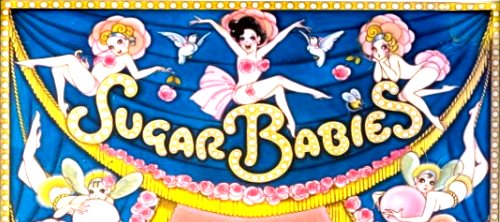
Musical
Musique: Jimmy McHugh • Paroles: *** Divers • Al Dubin • Dorothy Fields • Ralph G. Allen • Livret: Harry Rigby • Ralph G. Allen • Production originale: 2 versions mentionnées
Dispo: Génèse
The show consists of "traditional material ... routines going back 50 to 60 years. It contains standard songs such as 'Don't Blame Me' and 'I Feel a Song Comin' On', interspersed with newly created musical numbers, including 'The Sugar Baby Bounce' ". The show had burlesque "tropes" such as the swing number, the sister act, the fan dance, the vaudeville dog act. It was all fast and funny and it ended with a patriotic number...with the entire company in red, white, and blue with a flag background and Miller as the Statue of Liberty."
Genèse: Sugar Babies opened on Broadway at the Mark Hellinger Theatre on October 8, 1979 and closed on August 28, 1982 after 1,208 performances. Staging and choreography was by Ernest Flatt, with sketches directed by Rudy Tronto, musically directed by Glen Roven, scenic and costume design by Raoul Pene Du Bois, lighting design by Gilbert Vaughn Hemsley, Jr., vocal arrangements and lyrics by Arthur Malvin, additional vocal arrangements by Hugh Martin, Ralph Blane, and orchestrations by Dick Hyman. The revue starred Mickey Rooney in his Broadway debut, Ann Miller, Scot Stewart, Tom Boyd, Peter Leeds, Jack Fletcher, Jimmy Mathews, Bob Williams, Sid Stone, Michael Davis and Ann Jillian After the original stars left, successors included Juliet Prowse, Anita Morris, Joey Bishop, Eddie Bracken, Jeff Dunham and Rip Taylor. The revue subsequently had a short-lived National tour which starred Carol Channing and Robert Morse, from August 1980 through November 1980. The Bus and Truck Tour starred Eddie Bracken and Jaye P. Morgan (who was succeeded by Mimi Hines) and ran in 1982. The 2nd National Tour, in 1984 and 1985, reunited Rooney and Miller.
Résumé:
Création: 8/10/1979 - Mark Hellinger Theatre (Broadway) - 1208 représ.
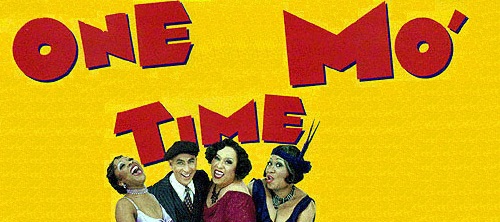
Musical
Musique: *** Divers • Paroles: *** Divers • Livret: Vernel Bagneris • Production originale: 5 versions mentionnées
Dispo: Résumé
Genèse:
Résumé: The show recreates a night at the old Lyric Theater on the corner of Iberville and Burgundy, New Orleans, 1926. Bertha Williams and her company nightly entertained in black vaudeville with such talents as Bessie Smith, Ma Rainey and others now immortal. Being on the TOBA Circuit (The Theater Owners Booking Agency, or, as the trade people had it, Tough On Black Asses), the pay was low and the touring conditions rough - but it was a place that offered a good time and a place to party!
Création: 22/10/1979 - Village Gate Theatre (Broadway (Off)) - 1372 représ.
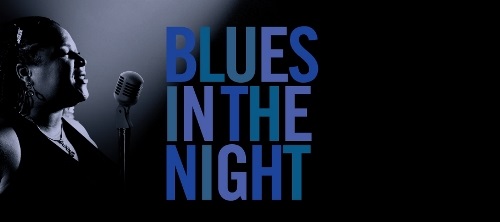
Musical
Musique: *** Divers • Paroles: *** Divers • Livret: Production originale: 3 versions mentionnées
Dispo: Résumé Synopsis Génèse Liste chansons
Genèse: The revue originally was staged by Epps and Gregory Hines under the supervision of Norman René at the off-Broadway Playhouse 46, where it ran for 51 performances between March 26 and May 11, 1980. The original cast consisted of David Brunetti, Rise Collins, Suzanne M. Henry, and Gwen Shepherd. After thirteen previews, the Broadway production, directed by Epps, opened on June 2, 1982 at the Rialto Theatre, where it ran for 53 performances. Jean Du Shon, Debbie Shapiro, Leslie Uggams, and Charles Coleman comprised the cast. The show was nominated for the Tony Award for Best Musical. The West End production, staged by Steve Whately, opened on June 9, 1987 at the Donmar Warehouse, where it ran through July 19, 1987. Maria Friedman, Debby Bishop, Carol Woods, and Clarke Peters comprised the cast. With Peter Straker replacing Peters, it transferred to the Piccadilly Theatre, opening on September 23 and running through July 28, 1988. The show was nominated for the Laurence Olivier Award for Best New Musical and Woods received a nomination for Best Actress in a Musical. The London cast album was recorded live during the August 25–26 performances at the Donmar. A production ran at the Minetta Lane Theatre, New York City, from September 14, 1988 through October 23, 1988 for 45 performances. The cast featured Carol Woods, Brenda Pressley, Kathleen Rowe McAllen and Lawrence Hamilton. The revue was presented at the Post Street Theatre, San Francisco, for eight weeks in July through September 2007. Maurice Hines played the role of "The Man in the Saloon", with Carol Woods, Freda Payne and Paulette Ivory as the three women.
Résumé: A tremendous West End success, this dynamic compilation of 26 hot and torchy blues frames and comments on three women's relationships with one snake of a guy. With no spoken text, the interweaving stories are defined through music alone - and what music! Ranging from Bessie Smith through Duke Ellington, Johnny Mercer/Harold Arlen, Alberta Hunter, Jimmy Cox, Ida Cox and more, the evening's music is raunchily forthright, infectiously good-humoured and always classically blues. Songs include "When A Woman Loves A Man", "Wasted Life Blues" and the title song.
Création: 26/3/1980 - Playhouse 46 (Broadway (Off)) - 51 représ.
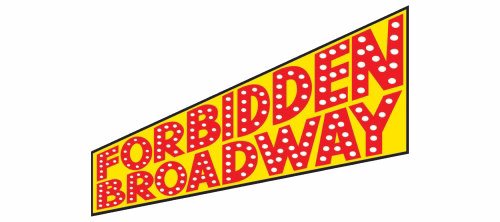
Musical
Musique: *** Divers • Paroles: *** Divers • Livret: *** Revue • Production originale: 19 versions mentionnées
Dispo: Résumé
Genèse:
Résumé: Unemployed actor Gerard Alessandrini wanted a showcase for his talents and put together as a nightclub act, a selection of some of the musical parodies of Broadway shows he had written. Lauded by critics and audiences alike Forbidden Broadway has since become New York's longest running musical comedy revue, winning Drama Desk, Obie and Outer Critics Circle Awards, and recently receiving a Tony Honor.
Création: 4/5/1982 - Triad Theatre (Broadway (Off)) - représ.
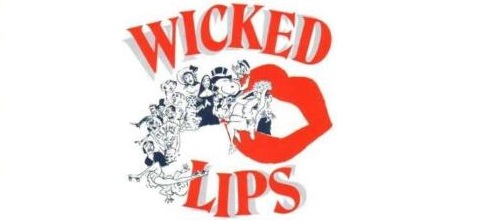
Musical
Musique: *** Divers • Paroles: Richard Kates • Livret: Production originale: 2 versions mentionnées
Dispo: Génèse
Genèse: In 1984 Richard wrote a show called WICKED LIPS which was due to play the Donmar Warehouse, in London, but due to copyright problems the show was banned only hours before it was due to open. However, a private performance did take place, and was so well received that Richard was determined it would return. Andrew Lloyd-Webber refused to have any new words to his music, thus the show received a one-night only “private” performance at the Donmar with Valerie Walsh, Tudor Davies and Cheryl Taylor. It took four years, and in 1988 WICKED LIPS finally opened at the Donmar to rave reviews and public acclaim. Jack Tinker wrote, “I offer my thanks for one of the slickest pieces of impertinence it has been my pleasure to enjoy.” It was an immense achievement for Richard, as not only did he write and produce it, but also directed and appeared in it
Résumé:
Création: 2/8/1984 - Donmar Warehouse (Londres) - 1 représ.
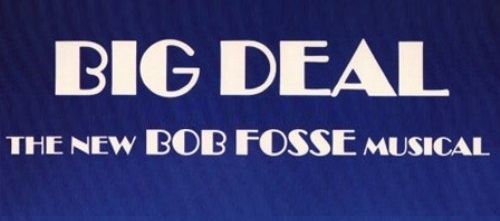
Musical
Musique: *** Divers • Paroles: *** Divers • Livret: Bob Fosse • Production originale: 1 version mentionnée
Dispo: Résumé Liste chansons
Genèse:
Résumé: In Chicago in the 1930s a group of small-time unemployed African-American men plan to rob a pawn shop. Their leader, Charlie, is a former boxer. But the hapless would-be thieves run into many obstacles along the way.
Création: 10/4/1986 - Broadway Theatre (Broadway) - 70 représ.
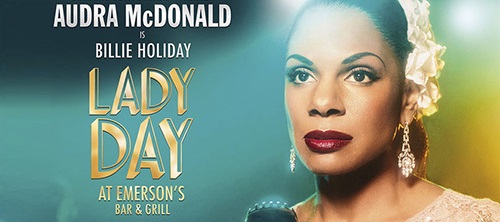
Musical
Musique: *** Divers • Paroles: *** Divers • Livret: Lanie Robertson • Production originale: 1 version mentionnée
Dispo: Résumé Génèse Liste chansons
Genèse: Lady Day at Emerson's Bar and Grill premiered at the Alliance Theatre, Atlanta, Georgia, on April 16, 1986, with direction by Woodie King, Jr., and Reenie Upchurch as Billie Holiday. The play was next produced Off-Broadway at the Vineyard Theatre on June 5, 1986[1] and then opened in a Vineyard Theatre production at the Westside Theatre on September 7, 1986. The play closed on May 17, 1987 after 281 performances. Directed by Andre Ernotte, Lonette McKee starred as Billie Holiday. McKee left the play in February 1987 and S. Epatha Merkerson took over the role of Billie Holiday.[4] The play won the 1987 Outer Critics Circle Award for Best Off-Broadway Book (Robertson). The play opened on Broadway at Circle in the Square on April 13, 2014. Directed by Lonny Price, the play starred Audra McDonald as Billie Holiday and featured Shelton Becton as pianist Jimmy Powers. The sets are by James Noone, costumes by Esosa, lighting by Robert Wierzel and sound by Steve Canyon Kennedy. The play was originally scheduled for a limited 10-week engagement, but had extended to August 31, 2014.[8] This is the second extension; the first was through August 10.[9] The play extended for the third time, from September 9 to September 21 (the play was on hiatus September 1 to September 7 for McDonald's vacation). The play finally closed on October 5, 2014, after its fourth extension. Audra McDonald won her record-breaking sixth Tony Award for the production, and she became the only person to win in all four acting categories, this time winning for Best Actress in a Play. The play also won for Best Sound Design of a Play. McDonald will reprise her role in the West End at the Wyndham's Theatre, from June 15, 2016 through September 3. (She will take a 3-month break from her role on Broadway in Shuffle Along.) This production was filmed at the Cafe Brasil in New Orleans and broadcast on HBO on March 12, 2016. Among regional productions, the Hollywood Playhouse (California) produced the play in October 1987, with S. Epatha Merkerson as Billie Holiday and directed by Andre Ernotte. Ernotte said that he wanted to "deglamorize Billie: show the dark, sad side. So it's not so much a nightclub act as a theater play with music." He also noted that Merkerson brought another aspect to the role as an actress rather than as a singer. The play was presented at the Long Wharf Theatre, New Haven, Connecticut in November 2005, with Ernestine Jackson as Billie Holiday.
Résumé: Spend an intimate evening filled with some of the most inspiring and moving songs ever written and hear the personal stories of Holiday’s loves and losses through a turbulent but extraordinary life. With a glorious score featuring God Bless the Child, What a Little Moonlight Can Do, Strange Fruit, Crazy He Calls Me and Taint Nobody's Biz-ness you'd better pull up a chair and order a drink because this legend's got a life to sing.
Création: 16/4/1986 - Alliance Theatre (Atlanta) - représ.
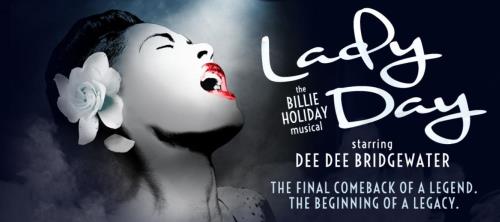
Musical
Musique: *** Divers • Paroles: *** Divers • Livret: Stephen Stahl • Production originale: 3 versions mentionnées
Dispo: Résumé
Genèse:
Résumé: Billie Holiday was a true artist of her day and rose as a social phenomenon in the 1950s. Her soulful, unique singing voice and her ability to boldly turn any material that she confronted into her own music made her a superstar of her time. Remembered for her masterpieces, creativity, and vivacity, many of Holiday's songs are as well known today as they were decades ago. She was a dedicated artist who remained true to the very highest artistic ideals. No wonder Lester Young, that whimsical master of paraphrase, dubbed her “Lady Day.” She was truly a lady.
Création: 25/2/1987 - Donmar Warehouse (Londres) - représ.
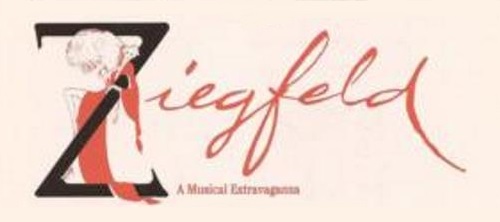
Musical
Musique: *** Divers • Paroles: *** Divers • Livret: Alistair Beaton • Ned Sherrin • Production originale: 1 version mentionnée
Dispo: Résumé Génèse Liste chansons
Genèse: This extravaganza boasted 22 six-foot tail showgirls, a total cast of 60, costumes worth over £1 million and purported to tell the tale of legendary Broadway impresario, Florenz Ziegfeld. Sadly, Ziegfeld himself was a man forever surrounded by dozens of beautiful girls yet unable to build a coherent relationship with any one of them; he was surrounded by millions of his own box-office dollars yet unable to spend it on anything but outer surfaces. He had hit shows but few of the writers and choreographers would stay with him, since he was an impresario with no real idea of anything beyond spectacle. Since the story of the man himself could not provide any “heart” or plot to the show, it came over as nothing more than a hugely over-the-top fashion parade from the museum of show business. Magnificent to look at - but nothing more. Within a few weeks of the opening, following a critical mauling and backstage rows, both the director and the leading man left the show. Tommy Steele was called in to re-structure the show and until a new lead was signed up, Marc Urqhart, the understudy, took over the title role. After some re-writing the role of Ziegfeld was played by Topol, but not even he could save this glitteringly expensive musical. It closed on October 1st with losses estimated at some £3 million…
Résumé: This is not so much a biography musical as a musical using all the hallmarks of a Ziegfeld revue - colourful costumes, beautiful girls, spectacular scenery and a melodious score from musical numbers by masters of the genre.
Création: 26/4/1988 - Palladium Theatre (Londres) - représ.
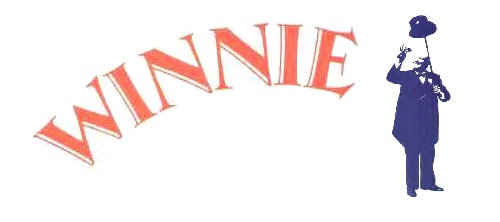
Musical
Musique: *** Divers • Cyril Ornadel • Paroles: *** Divers • Livret: Robin Hardy • Production originale: 1 version mentionnée
Dispo: Résumé Liste chansons
Genèse:
Résumé: It is presented as a show within a show. A war-damaged theatre in Germany in 1945 is being used to stage a tribute to Winston Churchill on the eve of the Gentral Election which is bound to see him re-elected. At the dress-rehearsal the performers are a mixed-bag: there is an ENSA group of Shakespearean actors touring “Julius Caesar” and twelve dancing girls (Doris and her Daisies) from an ENSA variety tour. The musicians and stage staff are recruited from the soldiers of the British Army on the Rhine and a visiting American colonel has been persuaded to take part as Roosevelt’s special envoy. The overall director, Jack Craven, takes the part of Churchill, with the leading Shakespeare lady, Stella, playing the role of Clemmie Churchill. There is even a German director who defies the fraternisation rules to help get the show on.
Création: 31/5/1988 - Victoria Palace Theatre (Londres) - représ.
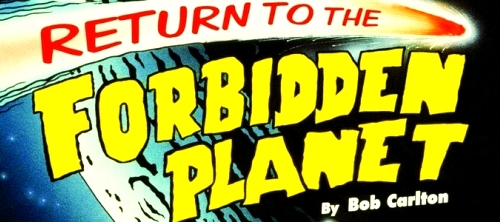
Musical
Musique: *** Divers • Paroles: *** Divers • Livret: Bob Carlton • Production originale: 7 versions mentionnées
Dispo: Résumé Synopsis Isnpiration Liste chansons
Genèse:
Résumé: On a stormy night way back in the winter of 2009, mad scientist Doctor Prospero worked late in his laboratory, aided only by his wife, Gloria, as he developed the elusive formula with which he would change the world. The apparently faithful Gloria, however, duped him and sent him off into hyper-space in an old spacecraft. Unknown to Gloria, her infant daughter, Miranda, slumbered peacefully in the craft and was now catapulted light years into the future in her father's company. Fifteen years later, a routine survey flight under the command of the chisel-jawed Captain Tempest leaves earth's orbit with a new Science Officer aboard - a hard and bitter woman. As a shower of meteorites hits the ship, the Science Officer flees, and the craft is pulled inexorably towards the plant D'Illyria - the Forbidden Plant. The adventure begins .......
Création: 18/9/1989 - Cambridge Theatre (Londres) - représ.
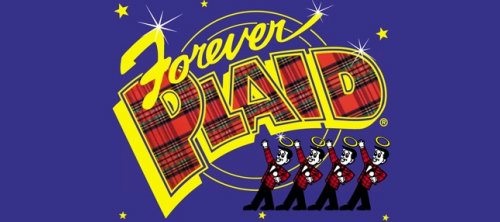
Musical
Musique: *** Divers • Paroles: *** Divers • Livret: Stuart Ross • Production originale: 4 versions mentionnées
Dispo: Résumé Synopsis
Genèse:
Résumé: There were these four guys, Sparky, Jinx and Francis and Smudge who loved to sing. They all met in high school around 1956. Discovering that they shared an affection for music and entertaining, they got together and dreamed of becoming like their idols - The Four Aces, The Four Freshmen, The Hi-Lo's and The Crew Cuts. They rehearsed in the basement of Smudge's family's plumbing supply company. It was here they became FOREVER PLAID. As their sound developed, they sang at family gatherings, fund raisers and eventually graduated to supermarket openings and local hops. Finally on 9th February 1964 they landed their first big gig - the Airport Hilton Cocktail Bar. On this day our story begins.....
Création: 20/5/1990 - Steve McGraw's Supper Club (Broadway (Off)) - 1811 représ.
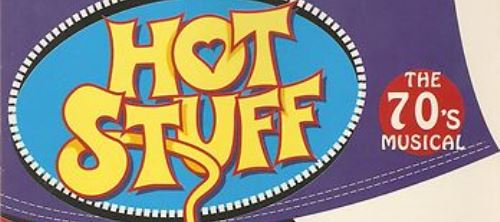
Musical
Musique: *** Divers • Paroles: *** Divers • Livret: Maggie Norris • Paul Kerryson • Production originale: 1 version mentionnée
Dispo: Résumé
Genèse:
Résumé: The plot concerns a young nerd called Joe Soap who sells his soul to the Devil in a Faustian pact to become the biggest rock star in the world. Through the agency of Mavis de Follies (Mephistopheles!), Joe dumps his fiancée Julie at the aisle, opting instead for a Helen of Troy figure (a man in drag) and ends up a mega-star, but, of course, eventually has the Devil to pay.
Création: 17/8/1993 - Cambridge Theatre (Londres) - 222 représ.
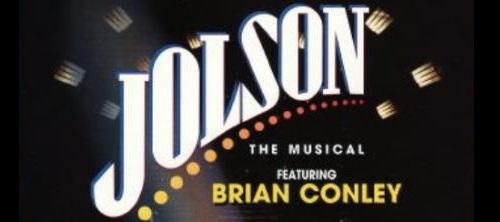
Musical
Musique: *** Divers • Paroles: Livret: Rob Bettinson • Production originale: 1 version mentionnée
Dispo: Résumé
Genèse:
Résumé: The real life-story of Al Jolson, depicting his childlike desperation need to please in his extravagant stage presentations, but having the courage to take on the warts and all. Privately Jolson was an ego with tonsils - a man who could ruthlessly steal other peoples’ songs, hijack their careers and destroy their affections. The story opens in the 1920s with his enormous success on Broadway and the first talking pictures and tells of his monstrous behaviour to his agent, managers and his much abused third wife, Ruby Keeler. The second act moves to the 1940s when his career is in decline until Hollywood films a totally false bio-pic, “The Jolson Story” and he stages a legendary “comeback” at the Radio City Music Hall.
Création: 26/10/1995 - Victoria Palace Theatre (Londres) - 580 représ.
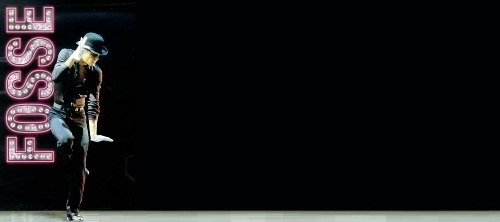
Musical
Musique: *** Divers • Paroles: Aucun • Livret: Production originale: 4 versions mentionnées
Dispo: Résumé Liste chansons
Genèse:
Résumé: Story: This was a compilation of dances created by Bob Fosse from his days as a nightclub performer through to his final production “Big Deal”. Six of the 27 numbers were repeated from the 1978 production “Dancin’”. There was no narration, and the dances were not presented chronologically, but all centred around the Fosse hallmarks: snapping fingers, bent knees and elbows, turned out legs, gloves and hats.
Création: 14/1/1999 - Broadhurst Theatre (Broadway) - représ.

Musical
Musique: *** Divers • Paroles: *** Divers • Livret: Robert Schrock • Production originale: 5 versions mentionnées
Dispo: Résumé Commentaire Génèse
Genèse: “Naked Boys Singing” is an off- Broadway phenomenon. It opened on July 22 nd 1999 at the Actors Playhouse, and finally closed on January 28 th 2012 after 3,069 performances, continuing to draw equally gay and straight crowds. It is off-Broadway’s longest running musical next to “The Fantasticks”, and has been a worldwide hit with productions all over the USA and in Canada, Brazil, Italy, Australia, Norway and South Africa.
Résumé: A traditional musical revue in the vein of Vaudeville and high-camp American musical theater, Naked Boys Singing celebrates the splendors of male nudity through comedy, song and dance. The show's 16 musical numbers range from the screamingly funny to poignant and moving material.
Création: 22/7/1999 - Actor's Playhouse (Broadway (Off)) - 3069 représ.
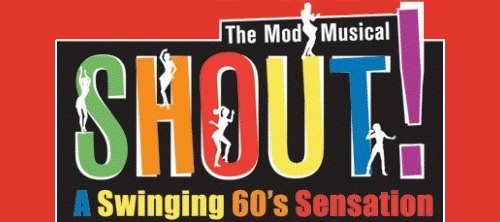
Musical
Musique: *** Divers • Paroles: *** Divers • Livret: Production originale: 3 versions mentionnées
Dispo: Résumé Liste chansons
Genèse:
Résumé: The beginning of the story is set in London during the start of the 60's, and the years fly by as the story progresses, until it's nearly the 70's. The play is focused on the life and problems of five women in their 20's (The Red Girl), 30's (Green, Blue, and Yellow girls) and 40's (Orange girl) who all face tough situations, usually involving relationships. Throughout the story, all five women send letters to Gwendolyn Holmes, who works for the magazine "Shout!" in an advice column and gives them advice on how to deal with said issues. The Yellow girl is the only American character in the show, who travelled all the way to Britain in order to see Paul McCartney. The Orange woman is shown as a full grown woman who is married, in her forties, and is starting to suspect her husband is cheating on her. The Blue girl is gorgeous and wealthy, and while she can go on and on about how perfect her life is, she does face some questions regarding her sexuality. The Green girl is a bit of a "slut" in the show, always hooking up with many men and throwing innuendos around. Finally, the Red girl is the youngest and most hopeful character; she is a bit hopeless in the beginning, stating she is not good-looking like other girls, until the man of her dreams comes along.
Création: 5/7/2001 - Jermyn Street Theatre (Londres) - représ.
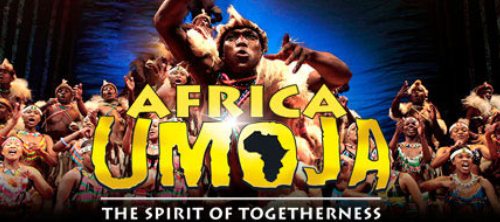
Musical
Musique: *** Divers • Paroles: *** Divers • Livret: *** Divers • Production originale: 4 versions mentionnées
Dispo: Résumé Génèse
Genèse: Todd Twala, l'une des deux créatrices d' UMOJA, grandit à Soweto, une banlieue extrêmement pauvre de Johannesburg, sans eau courante ni électricité. Elle rencontre Thembi Nyandeni, l'autre créatrice du spectacle, pour la première fois à l'école primaire de Soweto et elles deviennent immédiatement amies. Bien que la vie les sépare bientôt, elles mènent toutes deux, sans le savoir, des carrières artistiques parallèles, en se produisant comme danseuses et chanteuses dans différents shows. En plein apartheid, la loi sud-africaine empêchait les artistes noirs de se produire dans des spectacles pour blancs mais, au début des années 70, ces restrictions sont levées et c'est ainsi qu'un certain nombre de productions noires " tribales " voit le jour. C'est le cas notamment de IPI NTOMBI. Les deux femmes se retrouvent par hasard toutes deux au casting de ce show qui triomphe alors un peu partout dans le monde. Au cours de leurs longues tournées, leur complicité ne cesse de croître. Elles commencent à imaginer des chorégraphies de ce qui pourrait être leur propre spectacle, ce sont les prémices d' UMOJA. Après le succès international de IPI NTOMBI, Todd Twala et Thembi Nyandeni reviennent en Afrique du Sud et créent le spectacle PALS OF AFRICA, en 1982, qui devient un grand succès dans le pays tout entier, jusqu'au Swaziland voisin. Les deux femmes rêvent désormais de se produire en dehors des frontières de leur pays. Elles décident alors de faire évoluer leur spectacle, en investissant dans de nouveaux costumes et en recrutant une vraie troupe. Le spectacle se produit alors à l'international et change de nom pour BAOBAB, en clin d'oeil à leur ami Hugh Masekela qui dit d'elles : «À chaque fois que je vous revois, vous êtes devenues plus fortes. Comme cet arbre, le baobab, qui pousse et se fortifie toujours, même s'il pousse sur le plus ingrat des sols » En 2000, BAOBAB est joué pour accueillir le président de la Chine en visite en Afrique du Sud. En 2001 le spectacle change à nouveau de nom pour s'appeler définitivement UMOJA qui signifie en zoulou « l'esprit d'unité, vivre ensemble », autrement dit, ce que Todd Twala et Thembi Nyandeni ressentent être l'une pour l'autre, par-dessus tout. UMOJA remporte en Afrique du Sud cette année-là le First National Bank VITA AWARD pour la meilleure production musicale et le First National Bank VITA AWARD pour le meilleur spectacle. Le spectacle apparaît aux Sowetan 2000 Awards et, après une tournée triomphale en Afrique du Sud, la première en Europe a lieu au Théâtre Shaftesbury de Londres le 12 novembre 2001. Il reste à l'affiche pendant deux ans au West End de Londres. Un véritable plébiscite ! Pendant ce temps, deux troupes supplémentaires sont formées pour satisfaire les demandes internationales. A l'heure actuelle, UMOJA s'est produit dans plus de 25 pays et devant plus de 3,5 millions de spectateurs. En recrutant dans les townships, Todd Twala et Thembi Nyandeni souhaitent donner un peu de rêve aux jeunes défavorisés en leur donnant une alternative artistique à la misère et à la violence. Le rythme dans la peau, la danse et le chant dans le sang, tels sont les 30 artistes d' UMOJA. Leur passion et leur incroyable énergie sont transmises sur scène et mises au service de leur rêve. Pour tous, UMOJA est la chance de leur vie, ce qui a définitivement changé le cours de leur existence. UMOJA n'est pas la dernière page de l'histoire de l'amitié de Todd et Thembi, les deux petites filles pauvres des townships de Johannesburg. Il marque seulement le début d'un très long et magnifique succès pour les années à venir.
Résumé: It is a celebration of music and dance featuring 36 young black South African performers. The producers of the show are Todd Twala and Thembi Nyandeni, the force behind an earlier South African hit, Ipi Tombi.
Création: 15/11/2001 - Adelphi Theatre (Londres) - représ.

Musical
Musique: *** Divers • Paroles: *** Divers • Livret: Alan Janes • Rob Bettinson • Production originale: 1 version mentionnée
Dispo: Résumé Synopsis
Genèse:
Résumé: Featuring a rich catalogue of 1950's rock 'n' roll classics, the show tells the story of Vince Everett, a young man from the wrong side of the tracks who discovers his own unique musical talent whilst doing time in jail and emerges to become the world's greatest rock n' roll star, only to discover that he isn't ready for the pressures that money and fame can bring.
Création: 19/4/2004 - Piccadilly Theatre (Londres) - représ.
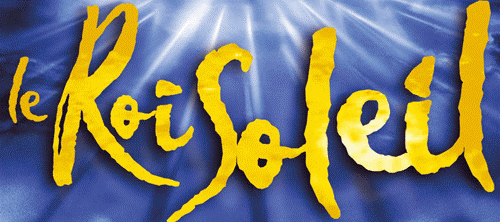
Musical
Musique: *** Divers • Paroles: Lionel Florence • Patrice Guirao • Livret: Production originale: 1 version mentionnée
Dispo: Résumé Synopsis Commentaire Génèse Liste chansons
Même si l’Histoire avec un grand H n’est pas totalement occultée, Le Roi Soleil se focalise plus particulièrement sur les femmes qui ont marqué et influencé le destin du Roi: sa mère, Anne d’Autriche; Marie Mancini, son premier amour à qui il a du renoncer pour raison d’état, Madame de Montespan, sa plus célèbre et sulfureuse maîtresse avec qui il a eu des enfants, des enfants élevés par Françoise d’Aubigné (Madame de Maintenon) qu’il épouse en secret en dépit des usages.
Genèse: Après quelques échecs plus ou moins importants (Les Demoiselles de Rochefort, Belles belles belles), la comédie musicale en France attendait un succès véritable, et tout est fait pour que ce soit le Roi Soleil qui l'obtienne. L'équipe est en partie celle des Dix Commandements (un très grand succès, déjà), le spectacle a été préparé pendant deux ans, avec un budget de six millions d'euros et le soutien de nombreux médias, notamment NRJ et TF1. Le spectacle occupe plus de cent cinquante professionnels confirmés, dont cinquante cinq rien que sur scène. Les décors, et surtout les costumes, sont extrêmement soignés, ainsi que les chorégraphies réalisées par Kamel Ouali. Préparé par une importante présence médiatique de ses chansons, le spectacle est tout de suite un succès et est représenté 380 fois devant un total d'un million six cent mille spectateurs environ. L'album se vend à près d'un million d'exemplaires et les singles qui en sont extraits se distribuent plutôt bien : Être à la hauteur (150 000 ex.), Je Fais de toi mon Essentiel (300 000 ex.), Tant qu’on rêve encore / Un geste de Vous (150 000 ex.), La vie passe (100 000 ex.). Le DVD collector de la comédie musical est édité en 2006 et comprend un making-of du spectacle réalisé par Pascal J. Jardel.
Résumé: Le roi Louis XIII est mort, son fils Louis XIV est trop jeune pour régner sur le royaume alors sa mère, Anne d'Autriche demande l'aide de Mazarin pour régner en attendant. Sous les lois de Mazarin, le peuple se soulève dirigé par le Duc de Beaufort, c'est la Fronde. Arrivé à l'âge de régner, Louis XIV rencontre la nièce de Mazarin Marie Mancini, dont il tombe amoureux. N'étant pas de famille royale, Anne d'Autriche, Mazarin et le Pape refusent ce mariage. Le roi Louis XIV se met en route pour la guerre dont il sortira blessé. Le temps de sa rémission, le frère du roi règne sur le royaume bien qu'il préfère s'amuser plutôt que travailler. À la mort de Mazarin, le roi désire régner seul, ne plus demander conseil. Il rencontre Madame de Montespan, sous les conseils de Monsieur le frère du roi, qui devient la maîtresse du roi dont il aura des enfants. Ces enfants seront éduqués par une gouvernante qui deviendra Madame de Maintenon. Pour garder l'amour du roi, Madame de Montespan se livre à la magie noire. Prise sur le fait, le roi la chasse du palais et se rapproche doucement de Madame de Maintenon dont il devient amoureux et se mariera en secret.
Création: 22/9/2005 - Palais des Sports (Paris) - représ.
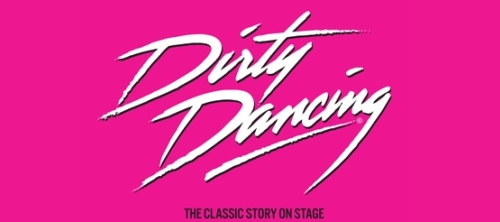
Musical
Musique: *** Divers • Paroles: *** Divers • Livret: Eleanore Bergstein • Production originale: 9 versions mentionnées
Dispo: Résumé Synopsis Génèse
Genèse: The film was adapted for the stage in 2004 as a musical, Dirty Dancing: The Classic Story on Stage. Produced by Jacobsen Entertainment in Australia for $6.5 million, it was written by Eleanor Bergstein and had the same songs as the film, plus a few extra scenes. Musical direction was by Chong Lim (one of the composers for the 2000 Summer Olympics in Sydney), and the initial production starred Kym Valentine as Baby, and Sydney Dance Company's Josef Brown as Johnny. Although reviews were mixed, the production was a commercial success, selling over 200,000 tickets during its six-month run. It has also had sellout runs in Germany, and in London's West End, where it opened at the Aldwych Theatre on October 23, 2006 with the highest pre-sell in London history, earning £6 million ($US12 million). As of March 2011, over 1 million people have seen the musical in London, selling out 6 months in advance. Josef Brown of Australia continues to play the role of Johnny Castle in London, while Georgina Rich made her musical debut as Baby. The West End production closed in July 2011 after a five-year run, prior to a two-year national tour. A New York production was in the planning stage in 2006,[30] with the show first starting in other North American cities. It broke box office records in May 2007 for its first such venue, selling $2 million on the first day of ticket sales in Toronto, Ontario, Canada. The production opened on November 15, 2007 at the Royal Alexandra Theatre, with an all-Canadian cast, except for Monica West (Baby Housman), Britta Lazenga (Penny) and Al Sapienza (Jake Housman). After Toronto, the musical opened in Chicago in previews on September 28, 2008 and officially on October 19, 2008, running through January 17, 2009, followed by Boston (February 7–March 15, 2009) and Los Angeles. No Broadway dates have been announced for the show.
Résumé: Un moment inoubliable ! Film-culte pour de nombreuses adolescentes, Dirty Dancing débarque sur les planches pour vous ramener en 1963. "Tout le monde à cette époque m'appelait Baby, et ça m'amusait. C'était avant l'assassinat du président Kennedy, avant l'avènement des Beatles... J'étais une fan du Mouvement pour la Paix et mon père était l'homme le plus formidable du monde. Nous allions passer l'été à la pension Kellerman. " Découvrez sur les planches l'ivresse et la romance de ce film à succès. Tous les tubes de la bande-originale la plus vendue de tous les temps sont au rendez-vous : Time Of My Life, Hungry Eyes, Hey Baby et Do You Love Me? Première danse. Premiers amours.
Création: //2006 - *** Inconnu (***) - représ.

Musical
Musique: *** Divers • Paroles: *** Divers • Livret: Allan Scott • Stephan Elliott • Production originale: 9 versions mentionnées
Dispo: Résumé Synopsis Génèse Isnpiration Liste chansons
Genèse: Original production (2006–08)Priscilla, Queen of the Desert premiered on 7 October 2006 at the Lyric Theatre, Star City Casino, Sydney, Australia and ended its run on 2 September 2007. Directed by Melbourne Theatre Company artistic director Simon Phillips, it starred Tony Sheldon as Bernadette, Jeremy Stanford as Tick (Mitzi) and Daniel Scott as Adam (Felicia) with Michael Caton as Bob. The Sydney production transferred to the Regent Theatre in Melbourne, beginning previews on 28 September 2007 before opening on 6 October 2007. The show closed on 27 April 2008 to make way for the Australian premiere of Wicked. The Melbourne production transferred to Auckland in New Zealand for a limited run, opening on 28 May 2008 and closed on 6 July 2008. The musical returned to the Star City Hotel and Casino in Sydney on 7 October 2008 for the second anniversary of the show's premiere and closed on 21 December 2008. The show starred original cast members Sheldon and Scott, alongside Todd McKenney as Tick and Bill Hunter as Bob. London (2009–11) A West End production started previews on 10 March 2009 at the Palace Theatre with the opening press night on 23 March. It is co-produced by Andrew Lloyd Webber's Really Useful Group and directed by Simon Phillips with musical arrangements by Stephen 'Spud' Murphy, choreography by Ross Coleman, costume designs by Tim Chappel and Lizzy Gardiner, production designs by Brian Thomson, and lighting by Nick Schlieper. The original cast included Jason Donovan as Mitzi (aka "Tick"), Tony Sheldon as Bernadette, and Oliver Thornton as Adam (Felicia). Notable replacements include Ben Richards as Tick (Mitzi), Don Gallagher as Bernadette and Ray Meagher as Bob. The London production closed on 31 December 2011. Toronto (2010–11) The musical opened on 12 October 2010 at the Princess of Wales Theatre in Toronto as a Pre-Broadway tryout. The musical featured all the of the Broadway cast with a new production team. It received largely positive reviews and strong ticket sales. The musical played for 12 weeks, a month longer than originally planned, closing on 2 January 2011. Several modifications were made to the production. Broadway (2011–12) The musical opened on Broadway on 20 March 2011 at the Palace Theatre with previews beginning 28 February 2011. Priscilla, however, made its North American debut at the Princess of Wales Theatre in Toronto for a limited 12-week pre-Broadway tryout; the last performance was on 2 January 2011. The original Broadway cast includes Will Swenson as Tick (Mitzi), Tony Sheldon, again, reprising his role of Bernadette, and Nick Adams as Adam (Felicia).[8] Choreography is by Ross Coleman, set design by Brian Thomson, lighting design by Nick Schlieper and costume designs by Tim Chappel and Lizzy Gardiner. Producers include Bette Midler, who joined the production team after seeing the London production; Liz Koops and Garry McQuinn for Back Row Productions; Michael Hamlyn for Specific Films; Allan Scott Productions; David Mirvish; Roy Furman; Terry Allen Kramer; James L. Nederlander; and Terri and Timothy Childs. The Broadway cast album was recorded in late January 2011 on Rhino Records for release on 15 March 2011. The production released video footage from their North American premiere on Tuesday, 15 February. The Broadway production closed on 24 June 2012 after 23 previews and 526 performances.
Résumé: Anthony "Tick" Belrose, a.k.a. Mitzi Del Bra, a drag queen, accepts an offer to perform at a casino in Alice Springs, a remote town in central Australia. After persuading his friends and fellow performers, Bernadette Bassenger – a recently bereaved transsexual woman – and Adam Whitely, a.k.a. Felicia Jollygoodfellow – an irritatingly flamboyant and obnoxious drag queen – to join him, the three set out for Alice Springs in a large tour bus which Adam/Felicia christens "Priscilla, Queen of the Desert". Guy Pearce plays Adam/Felicia, Terence Stamp plays Bernadette and Hugo Weaving plays Tick/Mitzi. They encounter on the way the less accepting attitudes of rural Australia, sexual violence, and the problems of vehicle breakdowns. The troupe eventually arrives at their destination with costumes and dance routines prepared. Before they arrive, Tick reveals that he is married, and that the trip is a favour for his wife, who runs the casino where they will be performing. Upon arriving, they learn that Tick and his wife also have a young son.
Création: 7/10/2006 - Sydney Lyric (Sydney) - représ.

Musical
Musique: *** Divers • Paroles: *** Divers • Livret: *** Divers • Production originale: 2 versions mentionnées
Dispo: Résumé Synopsis
Genèse:
Résumé: An interactive musical celebrating everything Eurovision, with the audience voting for their favourite song via text messaging. 'We are in Sarajevo, who have somehow won the rights to host this year's competition. Each audience member will be assigned to one of the ten competing countries as they enter the venue.'
Création: 15/4/2008 - UK Tour () - représ.
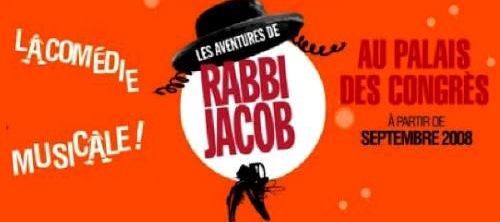
Musical
Musique: Vladimir Cosma • Paroles: *** Divers • Livret: Etienne de Balasy • Gérald Sibleyras • Production originale: 1 version mentionnée
Dispo: Résumé
Genèse:
Résumé: L'industriel Victor Pivert, catholique et français « comme tout le monde », irascible et un brin raciste, se prépare à marier sa fille Antoinette au fils d'un général. Mais un vendredi soir, alors qu'il rentre à Paris avec son chauffeur Salomon, dont il découvre avec stupeur qu'il est juif, il est victime d'une sortie de route. Resté seul après qu'il a congédié son employé qui refusait de travailler durant le shabbat, Victor Pivert s'en va chercher de l'aide, et aboutit dans une usine de chewing-gum. Il y assiste inopinément à un règlement de comptes entre les membres d'une police d'État d'un pays identifié comme « arabe » et un dissident politique, Mohammed Larbi Slimane, que ces derniers veulent éliminer. Slimane parvenant alors à s'échapper entraîne, malgré lui dans sa cavale, Victor Pivert devenu son « otage » et qui se retrouve de surcroît aussi bien recherché par la police française que par la police secrète du pays arabe menée par le sinistre Farès. Pivert et Slimane cherchent donc à quitter la capitale pour échapper à leurs assaillants. Les deux hommes se retrouvent ainsi à l'aéroport d'Orly, où ils usurpent l'identité de deux rabbins hassidiques tout juste débarqués de New York. Ils sont alors entraînés, malgré eux, dans une cérémonie juive au sein la rue des Rosiers à Paris, au cours de laquelle Victor, devenu « Rabbi Jacob », tombe nez à nez avec Salomon…
Création: 18/9/2008 - Palais des Congrès (Paris) - représ.
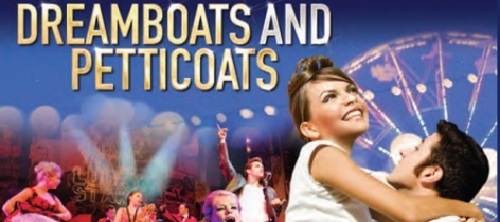
Musical
Musique: *** Divers • Paroles: *** Divers • Livret: Laurence Marks • Maurice Gran • Production originale: 6 versions mentionnées
Dispo: Résumé Synopsis Génèse Liste chansons
Genèse: After spending several weeks at the number one spot in the UK Compilation Charts and with over two million copies sold of the first album, the unexpected success of Dreamboats and Petticoats CD series made producers of the series to consider a stage musical adaptation. Brian Berg, the managing director of Universal Music TV (UMTV) and director of Universal Music UK, reportedly saw a niche in the market for older audiences who preferred the music of their teenage years in comparison to the seemingly inaccessible youth-driven playlists on current radio stations. Berg saw the adaptation of a stage musical as a move that "would enhance the brand" and therefore got in touch with Bill Kenwright, producer Laurie Mansfield and writers Laurence Marks and Maurice Gran to pen the book of the show. He had "the basic idea of youth clubs and nostalgia and a songwriting competition" as the basis of the show because he was a teenager in the sixties who attended a local youth club in Finsbury Park, north London. He added, "As kids growing up in the Sixties we all played in bands, I was a drummer in The Sound Barrier, the greatest unsigned band of the Sixties." Dreamboats and Petticoats was first performed in London at the Savoy Theatre on 22 July 2009. The run terminated on 31 October 2009 to make way for Legally Blonde. After a three-month hiatus, the musical found a new location at the Playhouse Theatre on 6 January 2010. It close on 4 August 2012.
Résumé: Featuring songs from Roy Orbison, The Shadows, Eddie Cochran, Billy Fury, Chuck Berry and many more. In 1961 emotions run high as talented young musicians Norman and Bobby compete to win the hearts of their adoring female fans - and more importantly, the gorgeous Laura. But when Laura shows that she’s no slouch with the guitar, rock ‘n’ roll fame beckons...
Création: /2/2009 - Churchill Theatre (Bromley) - représ.

Musical
Musique: *** Divers • Paroles: *** Divers • Livret: *** Divers • Production originale: 3 versions mentionnées
Dispo: Résumé
Genèse:
Résumé: With send-ups of Cameron Mackintosh (dressed in a kilt and admitting an addiction to old chestnuts and reality TV casting), Mary Poppins singing “Superchoredogitastic” with some terrible choreography, John Barrowman from “La Cage” singing “I Am Barrowman”, and the chorus of “Les Mis” singing “One More Year”. It was regarded as great fun, though some of it too directed at the “in- crowd”.
Création: 23/4/2009 - Charing Cross Theatre (Londres) - représ.
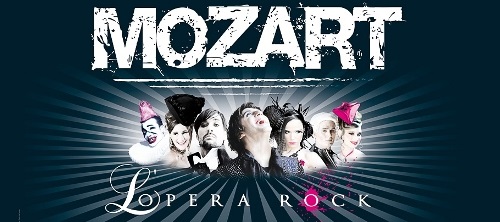
Musical
Musique: *** Divers • Paroles: Dove Attia • Patrice Guirao • Vincent Baguian • Livret: Dove Attia • François Chouquet • Production originale: 1 version mentionnée
Dispo: Résumé Génèse
Audacieux projet que de monter un opéra rock sur la vie de Mozart en faisant se côtoyer chansons pop-rock et extraits d’œuvres du grand compositeur. Outre ce mélange de rock et de classique, Mozart l’Opéra rock marque une véritable évolution par rapport aux grands spectacles musicaux de ces dernières années : des chansons mieux écrites, moins formatées et sirupeuses, un récit mieux construit laissant plus de place à la comédie et des chorégraphies moins envahissantes et systématiques.
Genèse: La première représentation a lieu le 22 septembre 2009 au Palais des sports de Paris. L'opéra rock se prolonge jusqu'au 3 janvier 2010 au Palais des sports. Du 4 février 2010 au 3 juillet 2010, la troupe est en tournée en France, en Belgique et en Suisse, avant un retour au Palais des Sports de Paris du 9 novembre 2010 au 9 janvier 2011. Une nouvelle tournée commence le 28 janvier 2011 au Zénith de Lille et se termine les 8, 9 et 10 juillet 2011 au Palais omnisports de Paris-Bercy. Un concert (sans costumes ni décors) est organisé au Grand Rex de Paris le 7 novembre 2011 afin de promouvoir la sortie du film 3D en salles. En février et octobre 2013, le spectacle est en tournée à Kiev, Moscou et Saint-Pétersbourg dans une version symphonique accompagnée par la Chorale et l’Orchestre national de Kiev. Ces représentations ont eu un immense succès puisqu’elles ont rassemblé plus de 50 000 spectateurs en seulement 10 concerts! Cette version symphonique se produit également lors d'une tournée française en septembre 2014 avec une représentation au Palais des sports de Paris. Malheureusement en raison de la conjoncture et du contexte économique trop difficile pour la structure, les 7 dernières dates sont annulées à la dernière minute. Le 16 août 2014, la troupe a participé au Festival international de Carthage à Tunis. De février à avril 2016, le spectacle est en tournée en Corée du sud avec notamment Laurent Ban dans le rôle de Salieri et Rafaëlle Cohen dans celui d'Aloysia. La comédie musicale est adaptée en coréen le 18 novembre 2011, avec l'acteur Daniel Henney, qui joue le rôle principal, la chanteuse Lee Hyori, et Lee Haeri qui est la chanteuse principale. Le 23 décembre 2011, la troupe française encourage les coréens et poste une vidéo sur YouTube. La version japonaise (『ロックオペラ モーツァルト』), quant à elle, s'est donnée du 11 au 17 février 2013 à Tokyo, et du 22 au 24 février 2013 à Osaka.
Résumé: Le spectacle démarre au moment où le destin de Wolfgang Amadeus Mozart bascule : Hieronymus von Colloredo-Mannsfeld succède au Prince-archevêque de Salzbourg. Le nouveau souverain est un homme austère et autoritaire qui est insensible à la musique de Mozart et allergique à la fougue et l'impertinence du personnage. Pour Mozart, la vie à Salzbourg devient vite intenable. Il a 17 ans quand il décide de quitter sa ville natale en compagnie de sa mère à la recherche d'un avenir meilleur dans une capitale européenne. Le périple du compositeur est jalonné d'échecs et de cruelles déceptions. Aucune cour européenne ne l'engage, il connaît sa première déception amoureuse avec Aloysia Weber et il perd sa mère à Paris, ville qui le rejette et l'humilie. Il commence à se faire connaitre... Mozart réintègre sa vie austère et terne à Salzbourg quand on apprend le décès de l'Impératrice d'Autriche. Le compositeur doit accompagner son employeur, Colloredo, à Vienne (Autriche) pour rendre hommage au nouvel Empereur, Joseph II du Saint-Empire. Vienne, capitale européenne de la musique, va sceller le destin du compositeur. Mozart va connaître la gloire, l'amour, la rivalité puis la chute et la misère. Il va mourir dans le plus grand dénuement en laissant sa plus belle œuvre, le Requiem, inachevée.
Création: 22/9/2009 - Palais des Sports (Paris) - représ.
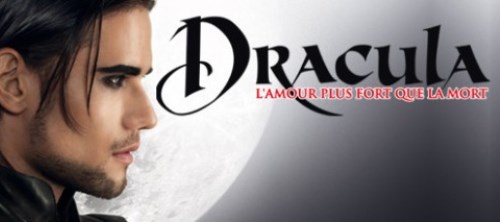
Musical
Musique: *** Divers • Paroles: *** Divers • Livret: Production originale: 1 version mentionnée
Dispo: Résumé Synopsis Liste chansons
Après Le Roi Soleil et Cléopâtre, Kamel Ouali revisite le mythe du comte Dracula. Sur des chansons originales, le spectacle met en avant l’histoire de l’amour impossible de Dracula, tiraillé entre passion et raison.
Genèse:
Résumé: Le spectacle met en avant l'histoire de l'amour impossible du Comte Dracula, tiraillé entre passion et raison… Car une comédie musicale de Kamel Ouali sans amour, ca ne saurait respecter sa tradition!
Création: 30/9/2011 - Palais des Sports (Paris) - représ.
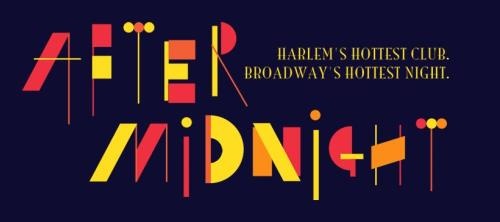
Musical
Musique: *** Divers • Paroles: *** Divers • Livret: Langston Hughes • Production originale: 1 version mentionnée
Dispo: Résumé
Vidéos:
Genèse:
Résumé: Celebrates Duke Ellington's years at the famed Harlem nightclub in the 1920s and '30s, when the joint was jumping with shows featuring big band swing and blues music.
Création: 18/11/2011 - New York City Center (Broadway) - représ.
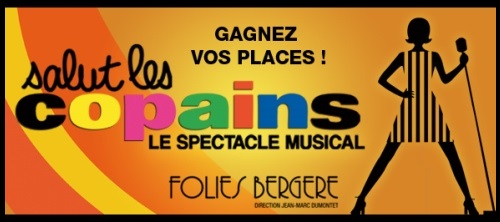
Musical
Musique: *** Divers • Paroles: *** Divers • Livret: Pascal Forneri • Production originale: 1 version mentionnée
Dispo: Résumé
Le phénomène des années 60 Salut Les Copains, le spectacle musical enfin sur scène ! Pour le 50ème anniversaire du premier magazine créé en 1962 et de l’émission mythique sur Europe 1, le symbole de la jeunesse des années 60 revient sur le devant de la scène pour un spectacle inédit !! Deux heures au coeur de la période des idoles !
Genèse:
Résumé: Au début des années 60, la jeunesse française se retrouve autour du poste pour écouter l'émission radiophonique Salut les copains. Catherine, étudiante sage, et Michel, rebelle et rock, ne sont pas du même monde mais leurs destins vont se croiser au rythme des tubes et traverser les moments fondateurs de la culture pop : mode, twist, contestation, rock... Contée par l'Idole, personnage fantasque, l'histoire couvre pratiquement une décennie au cours de laquelle toute une génération va découvrir la liberté.
Création: 18/10/2012 - Folies Bergères (Les) (Paris) - représ.
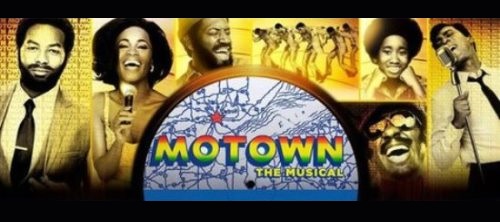
Musical
Musique: *** Divers • Paroles: *** Divers • Livret: Berry Gordy • Production originale: 2 versions mentionnées
Dispo: Résumé Commentaire Génèse Liste chansons
Genèse: Motown: The Musical premiered on Broadway at the Lunt-Fontanne Theatre on April 14, 2013, after previews starting on March 11. Direction is by Charles Randolph-Wright, with choreography by Patricia Wilcox, scenic design by David Korins, costumes by ESosa, lighting by Natasha Katz, sound design by Peter Hylenski, and projection design by Daniel Brodie. The current cast includes Brandon Victor Dixon, Krystal Joy Brown (Diana Ross), Raymond Luke Jr. and Prince George Maynard as the young Michael Jackson, Stevie Wonder and Berry Gordy, Bryan Terrell Clark (Marvin Gaye) and Charl Brown (Smokey Robinson). A national tour began in April 2014. The musical finished its original Broadway run on January 18, 2015, closing after 37 previews and 738 regular performances. A return to Broadway is planned for July 2016, according to the producer Kevin McCollum. After speculation that a London production would be staged in the Dominion Theatre after the refurbishment of the theatre after the closing of We Will Rock You, an eventual West End production was announced for the Shaftesbury Theatre to begin on 11 February 2016 and ending on 22 October 2016.
Résumé: In 1983 at the Pasadena Civic Auditorium recording stars are gathered to celebrate the 25th anniversary of Motown Records. In a flashback, in Detroit, Michigan the young Berry Gordy watches the neighbors dancing. In 1957, the adult Berry forms his own record label, and begins to make lifelong friends with recording artists/singers such as Marvin Gaye and Smokey Robinson. Berry discovers the Supremes and Diana Ross, among many others. The recording stars sing their popular numbers, including Ross performing " 'I Hear a Symphony,' 'You're Nobody 'Til Somebody Loves You' and 'You're All I Need to Get By,'.... Stevie Wonder, The Supremes ('Buttered Popcorn' 'Where Did Our Love Go'), The Miracles ('Shop Around') The Marvelettes ('Please Mr. Postman'), Mary Wells and The Temptations ('Bye Bye Baby'/'Two Lovers Medley'), Martha and the Vandellas ('Dancing in the Street'), The Contours ('Do You Love Me'),... and The Jackson 5.
Création: 14/4/2013 - Lunt-Fontanne Theatre (Broadway) - représ.

Musical
Musique: *** Divers • Paroles: Lionel Florence • Patrice Guirao • Livret: Lionel Florence • Patrice Guirao • Production originale: 1 version mentionnée
Dispo: Résumé Commentaire Liste chansons
Héros au grand cœur, toujours en quête de justice, Robin des Bois nous fera vivre entouré de ses fidèles compagnons la plus belle légende de l’histoire d’Angleterre.
Genèse:
Résumé: L'histoire s'inspire de la légende médiévale mais se situe une quinzaine d'années après que Robin des Bois et Marianne se sont séparés. Ils ont eu ensemble un fils prénommé Adrien mais Robin ignore son existence. Marianne devra alors l'annoncer à Robin pour qu'il vienne en aide à son enfant. Le jeune homme est en effet tombé amoureux de Bédélia, qui n'est autre que la fille du Shérif de Nottingham. Ce dernier tentera évidemment de mettre fin à cette idylle et briser une fois pour toutes Robin des Bois.
Création: 26/9/2013 - Palais des Congrès (Paris) - représ.
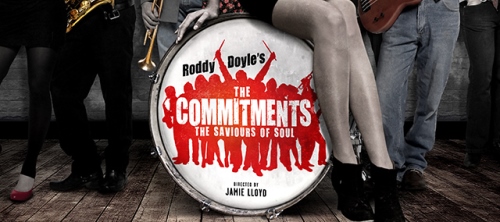
Musical
Musique: *** Divers • Paroles: *** Divers • Livret: Production originale: 1 version mentionnée
Dispo: Synopsis Génèse
Genèse: The musical is based on the 1987 novel, by Roddy Doyle. Following the books adaption into a movie in 1991, Doyle turned down offers to turn the novel into a musical. Officially confirmed on 19 April 2013, in Ireland, producers announced that the show would play the Palace Theatre, with tickets going on sale everywhere on 23 April. Despite initially looking to hire another writer to write the book for the musical, Doyle ended up writing the show himself. The show will be directed by Jamie Lloyd, with choreography by Ann Yee, set design by Soutra Gilmour, sound design by Rory Madden and lightning by Jon Clark. Ticket prices for the show began at £10, with all preview tickets half price. West End (2013) The Commitments began previews on 21 September 2013, at the Palace Theatre, London, before holding its official opening night on 8 October. On 20 August 2013, casting was announced with Denis Grindel playing Jimmy Rabbitte, Killian Donnelly playing Deco, Ben Fox playing Joey Fagan, Sean Kearns as Jimmy Rabbitte’s father and Sarah O’Connor, Stephanie McKeon and Jessica Cervi playing The Commitmentettes.
Résumé:
Création: 8/10/2013 - Palace Theatre (Londres) - représ.
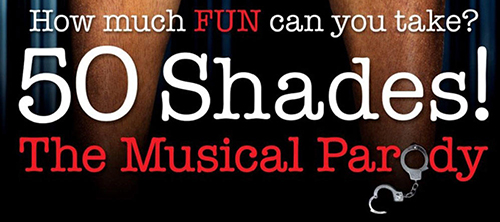
Musical
Musique: *** Divers • Paroles: *** Divers • Livret: *** Divers • Production originale: 1 version mentionnée
Dispo: Résumé
50 Shades! The Musical Parody is the sexy and hilarious send-up of Fifty Shades of Grey, the greatest novel EVER. - See more at: http://50shadesthemusical.com/about/#sthash.e8peShUO.dpuf
Genèse:
Résumé: 50 Shades! The Musical Parody is the sexy and hilarious send-up of Fifty Shades of Grey, the greatest novel EVER. The show has audiences rolling on the floor, dancing in the aisles and BEGGING for more. Now it’s your turn to indulge in New York City’s guiltiest pleasure, featuring uninhibited performances, the dirtiest dancing and loads of BDSM (Best Damn Songs and Music). 50 SHADES! The Musical Parody will rock your world—and it’s even more fun in a group! Take your friends, take your co-workers and, as Time Out Los Angeles says, “TAKE YOUR INNER GODDESS TO THIS SMASH HIT!”
Création: 12/3/2014 - Elektra Theatre (Broadway (Off)) - représ.
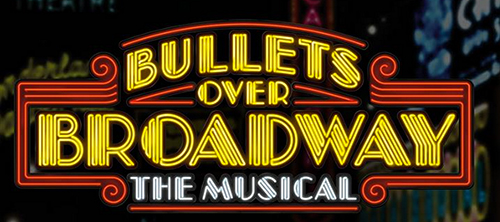
Musical
Musique: *** Divers • Paroles: *** Divers • Livret: Woody Allen • Production originale: 1 version mentionnée
Dispo: Résumé Commentaire Génèse Liste chansons
Bullets Over Broadway the Musical is a musical written by Woody Allen, based on his and Douglas McGrath's film Bullets over Broadway about a young playwright whose first Broadway play is financed by a gangster. The score consists of jazz and popular standards of the years between World War I and about 1930 by various songwriters.
Genèse: Bullets Over Broadway the Musical premiered on Broadway at the St. James Theatre on March 11, 2014 in previews, officially opening on April 10, 2014. Directed and choreographed by Susan Stroman, the cast features Marin Mazzie (as Helen Sinclair), Zach Braff (as David Shayne), Nick Cordero (as Cheech), Karen Ziemba (as Eden Brent), Vincent Pastore (as Nick Valenti), and Brooks Ashmanskas (as Warner Purcell). Scenic design is by Santo Loquasto, costumes by William Ivey Long, lighting by Donald Holder, sound by Peter Hylenski, musical arrangements and supervision by Glen Kelly and orchestrations by Doug Besterman. The musical contains jazz and popular standards from the years between World War I and about 1930, with additional lyrics written by Glen Kelly. The musical closed on August 24, 2014, after 156 performances and 33 previews. A touring production will start in October 2015. It will begin with a two-week stop at Playhouse Square in Cleveland, Ohio from October 6–18. This is a non-Equity tour, directed by Jeff Whiting.
Résumé: In 1929, playwright David Shayne is finally getting his first play God of Our Fathers produced on Broadway. The producer, Julian Marx, has enlisted the wealthy gangster Nick Valenti to pay for the show. Valenti wants to have his dim-witted and untalented girlfriend, Olive Neal, star as one of the leads. Valenti has assigned his strong-armed gangster, Cheech, to watch over Olive. Surprisingly, Cheech comes up with great ideas for improving the play. However, aging diva Helen Sinclair, the real star of the show, romances the younger David, who already has a girlfriend, Ellen. Meanwhile, the leading man, Warner Purcell, has his eye on Olive.
Création: 10/4/2014 - St. James Theatre (Broadway) - représ.

Musical
Musique: *** Divers • Paroles: *** Divers • Livret: Dove Attia • François Chouquet • Production originale: 1 version mentionnée
Dispo: Résumé Synopsis Commentaire
Après Le Roi Soleil, Mozart l’Opéra Rock et 1789, les Amants de la Bastille, Dove Attia présente son nouveau spectacle « La Légende du Roi Arthur », une grande fresque musicale qui raconte une des plus belles histoires d’amour de tous les temps.
Genèse:
Résumé: Aux temps anciens, le Roi de Bretagne Uther Pendragon, régnait sur un royaume prospère et paisible qui couvrait alors la Grande-Bretagne actuelle et la pointe de Bretagne française. Mais un jour, ce roi fut pris d’une passion soudaine pour l'épouse d'un de ses barons. Merlin, le druide, son illustre conseiller, tenta de l’en détourner. Mais le roi insista tant que Merlin dût céder à sa volonté et l’aida par magie à posséder la femme qu'il désirait plus que tout au monde. En échange, Merlin exigea que le fruit de cette union lui soit confié, et neuf mois plus tard naquit un garçon nommé Arthur. Merlin confia l'enfant à un homme sage, preux chevalier, afin qu'il puisse grandir au sein d'une famille et recevoir une éducation digne et rigoureuse. Peu de temps après, Le roi Uther fut blessé au combat. Mais avant de mourir, il planta son épée dans le roc et la nomma « Excalibur » l’épée des rois. Il jura que seul son successeur serait capable de l’en extraire. Depuis ce jour, personne ne put tirer l’épée du roc et le Royaume de Bretagne, sans roi, fut déchiré par les guerres fratricides et les attaques des Saxons aux frontières.
Création: 17/9/2015 - Palais des Congrès (Paris) - représ.

Musical
Musique: *** Divers • Paroles: *** Divers • Livret: Jack Plotnick • Seth Rudetsky • Production originale: 2 versions mentionnées
Dispo: Résumé Synopsis Génèse Liste chansons
Everything that can go wrong will go wrong in Seth Rudetsky and Jack Plotnick's Disaster!, a raucously silly spoof of the 1970's favorite breed of blockbuster - the disaster movie. Ramping up the cheese to dangerous levels, this jukebox musical soundtracks the ever-escalating action with some of the decade's smoothest numbers, including 'Signed, Sealed, Delivered I'm Yours' by Stevie Wonder and Barry Manilow's 'Daybreak'
Genèse: The origins of Disaster! go back to the early 1990s. While working together in 1992, Seth Rudetsky and Drew Geraci developed the concept of creating a musical reminiscent of the 70s disaster films they both appreciated. The original storyline involved the New York City blackout of 1977 and incorporated the decade’s top songs as both musical numbers and vehicles for comedy. The concept was left largely untouched until Rudetsky was asked in 2011 to put on a show benefiting the nonprofit organization Only Make Believe. Rudetsky decided to return to his disaster musical idea for the benefit, and in the span of three months, he and Jack Plotnick revised the concept and wrote the first script of Disaster!. Major changes included widening the plot’s range. Instead of focusing on one disaster, the NYC blackout, they decided to introduce a variety of catastrophes common to the popular films of the 1970s that they had grown up watching. The benefit show successfully impressed critics, and from its success, the musical later had a nine show Off-Off-Broadway run before being made into an Off-Broadway production. A Broadway production directed by Plotnick is slated to open in March 2016 at the Nederlander Theatre, with an all-star cast and choreography by JoAnn M. Hunter. The show is produced by Robert Ahrens, Mickey Liddell/LD Entertainment, Hunter Arnold, James Wesley and Jim Burba and Bob Hayes.
Résumé: Disaster! takes place in 1979 Manhattan during opening night of the Barracuda, the first floating casino and discothèque in New York. The characters gather to gamble and dance, unaware of impending natural disasters, and the building's lack of safety measures compounds these catastrophes. Notably, the casino's structure was built on a fault line, which causes earthquakes throughout the show. The plot follows several characters' dynamics and interactions throughout the opening night as they deal with various plot elements reminiscent of 1970s disaster cult films such as The Poseidon Adventure and Airport 1975.
Création: 8/3/2016 - Nederlander Theatre (Broadway) - représ.
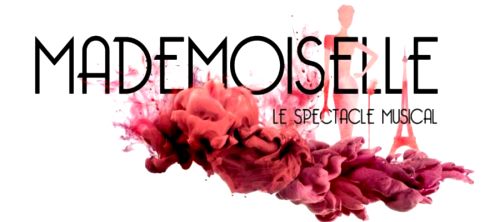
Musical
Musique: *** Divers • Paroles: *** Divers • Livret: Isabelle Layer • Philippe d’Avilla • Production originale: 1 version mentionnée
Dispo: Résumé Génèse
Quand le chic parisien rencontre Cabaret, Chorus Line ou Chicago... Quand le glamour à la française embrasse l’univers de Liza Minnelli, Frank Sinatra, Marilyn Monroe ou Peggy Lee…
Genèse: Isabelle Layer (Love Cabaret) est à l'origine de ce projet initié d'abord en 2014 et enrichi depuis avec Philippe d'Avilla (Gutenberg! le musical ; Évita) à l'écriture et à la mise en scène. Tous deux venus de Belgique mais installés en France depuis quelques années, ils s'associent ici pour la première fois afin de monter un spectacle qui vient du cœur et met en évidence des valeurs comme l'amour, le respect des autres et de soi-même. C'est à l'aide de chansons célèbres issues du jazz, du cabaret ou de la comédie musicale américaine qu'ils ont choisi de raconter l'histoire de Mademoiselle (interprétée par Isabelle Layer elle-même), une célèbre meneuse de revue qui revient sur son histoire et ses rêves. Accompagnée d'un pianiste, Vincent Gaillard, elle invitera les spectateurs à s'immerger dans son univers à compter du 22 septembre au Théâtre du Marais.
Résumé: MADEMOISELLE est une célèbre meneuse de revue. Elle enflamme depuis des années les plus grandes scènes parisiennes, du Casino de Paris au Lido, en passant par le Moulin Rouge et les Folies Bergère. Le soir de ses adieux, dans l’intimité chaleureuse de sa loge, elle nous livre l’histoire de la petite fille aux grands rêves… son histoire ! Elle nous raconte son père aimant, sa mère protectrice et envahissante, les hauts et les bas de sa carrière, sans oublier les amours qui ont guidé sa vie. Entre rires, larmes, émotions et situations cocasses, nous réaliserons avec elle que, dans la vie, l’essentiel n’est pas l’argent et la gloire mais bien l’amour et le respect des autres… et surtout de soi !
Création: 22/9/2016 - Théâtre du Marais (Paris) - représ.
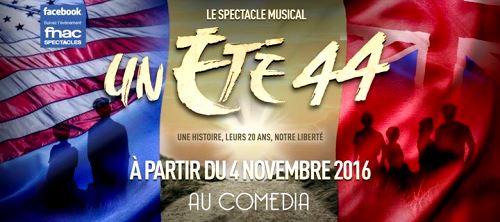
Musical
Musique: *** Divers • Paroles: *** Divers • Livret: Production originale: 1 version mentionnée
Dispo: Résumé Commentaire Génèse
Un été 44, une histoire, leurs 20 ans, notre liberté. « Toute disparition d’un gamin de 18 ans est tellement absurde, que la seule façon de lui donner un sens, c’est que nous, vivants, ne les oublions pas » rappelle Jean-Jacques Goldman, « Sous chaque croix, il y avait un destin. Il faut que l’on soit conscient à quel point cette date a changé nos vies ».
Genèse: Il aura fallu toute la persuasion de Sylvain Lebel pour parvenir à rassembler ces talents et à monter ce futur show. Auteur des « Bêtises » pour Sabine Paturel, du « Géant de papier » ou de plusieurs chansons pour Serge Reggiani, l’homme est né en Normandie sur les lieux-mêmes où plus de 150 000 soldats alliés débarquèrent. « Je crois que je porte ce projet depuis ma naissance. J’ai toujours entendu parler de cette magnifique épopée. » Il avait donc un objectif : « Raconter l’histoire des trois mois qui ont changé le monde moderne, depuis le 6 juin 1944, et le début du débarquement et de la bataille de Normandie, jusqu’au 26 août, et la libération de Paris. Mais le faire à travers des tranches de vie de ces gens anonymes qui ont été soit des héros, soit des victimes ». Après avoir fait appel à Erick Benzi (parolier de Céline Dion, Johnny Hallyday ou de Florent Pagny) pour les textes, Sylvain Lebel s’est ensuite tourné pour la musique vers les poids-lourds de la variété française : parmi eux, rien de moins que Goldman, Le Forestier, Duteil, Aznavour ou encore Alain Chamfort (liste complète ci-dessous). Tous ont composé un ou plusieurs des 23 titres de ce spectacle, qui retrace le destin des six anonymes au cœur de la seconde guerre mondiale. Les chansons relatent entre autre, les heures angoissantes des soldats tout juste arrivés sur le sol normand, l’incroyable histoire des pianos Steinway V Victory et des 2436 jazzmen débarqués avec eux, ou rappellent les Rochambelles, cette brigade d’infirmières et de conductrices ambulancières qui firent partie de la 2e division blindée (2e DB) du général Leclerc et débarquèrent à Utah Beach… Elles reviennent également sur les commandos Kieffer, ces hommes du premier bataillon de fusiliers marins créé en 1942 en Grande-Bretagne par la France libre et seuls représentants français à débarquer sur les plages. Et évoquent enfin les simples résistants, les soldats allemands, les lâches, les tombes des soldats inconnus (« Seulement connu de Dieu ») ou encore le devoir de mémoire, à travers le titre de Jean-Jacques Goldman : « On n’oublie pas ». Sans mauvais jeu de mots, l’artillerie lourde semble donc être de sortie avec Un été 44. Pourtant, c’est pour l’équipe créative, une grande première en terme de spectacle musical. Le show sera en effet produit par Valery Zeitoun, et mis en scène par Anthony Souchet (directeur artistique de Mylène Farmer), sous la direction musicale d’Erick Benzi . Et si les signatures sont prestigieuses, la distribution est une vraie surprise. Les six jeunes artistes présents sur scène sont totalement inconnus du grand public. Un souhait des créateurs : « ce sont des anonymes qui vont chanter », et qui se nomment Philippe Krier, Nicolas Laurent, Tomislav Matosin, Barbara Pravi, Sarah-Lane Roberts et Alice Raucoules (finaliste de la Star Academy saison 8), pour camper des personnages « imaginaires, mais pourtant vrais ». Des auteurs aux chanteurs, des producteurs aux paroliers, tous semblent donc vierges d’expériences en termes de spectacle musical. Même si l’aventure parait osée -y compris artistiquement-, c’est peut-être finalement une bonne nouvelle, au regard de ce que l’on a parfois vu ces dernières années. Une chose est certaine, abordé pour la première fois sur scène, le thème est particulièrement fort et poignant, l’équipe d’auteurs-compositeurs n’a pas à faire ses preuves, et la découverte de nouveaux interprètes ne peut jamais faire de mal.
Résumé: Le spectacle musical UN ETE 44 retrace l’incroyable histoire des 3 mois qui ont changé le monde. 6 jeunes chanteurs nous font revivre au travers de destins d’anonymes, l’été 44, du débarquement de Normandie, à la libération de Paris. Ces jeunes vies vont se croiser sur la route qui mène à la liberté. UN ETE 44 c’est avant tout un projet d’artistes : 15 auteurs-compositeurs prestigieux ont écrit spécialement les chansons de ce spectacle musical: Michel AMSELLEM, Charles AZNAVOUR, Erick BENZI, François BERNHEIM, Alain CHAMFORT, Yves DUTEIL, Jean FAUQUE, Jean-Jacques GOLDMAN, Guy IACHELLA, Joëlle KOPF, Maxime LE FORESTIER, Sylvain LEBEL, Florent LEBEL, Claude LEMESLE, Christian LOIGEROT. Mais c’est aussi la découverte de notre histoire et de ses épisodes méconnus: L’histoire des Rochambelles, L’histoire des pianos Steinway V Victory et des 2436 jazzmen debarqués avec eux. La grande Histoire regorge d’aventures à découvrir tout au long du spectacle.
Création: 4/11/2016 - Comédia (Paris) - représ.

Musical
Musique: *** Divers • Paroles: *** Divers • Livret: Bruno Gaccio • Grégory Antoine • Production originale: 1 version mentionnée
Dispo: Résumé Commentaire
Faire revivre l’enregistrement d’une émission de télévision en 1974 avec des invités aussi prestigieux que Claude François, Sacha Distel, Dalida ou encore Mike Brant, c’est le pari fou du nouveau spectacle musical Hit-Parade qui occupera la scène du Palais des Congrès à partir du 12 janvier 2017.
Genèse:
Résumé: Cette comédie musicale inédite va nous immerger dans la période du milieu des années 70, où la télévision prenait un nouvel essor, plus festif grâce à l’apparition de la couleur et des premiers grands programmes de shows télévisés. C’est à cette époque que naît TF1, suite à la dissolution de l’ORTF et à l’occasion de cet événement, la chaine va organiser de grands spectacles télévisuels.
Création: 12/1/2017 - Palais des Congrès (Paris) - représ.

Musical
Musique: *** Divers • Paroles: *** Divers • Livret: Kyle Jarrow • Production originale: 1 version mentionnée
Dispo: Résumé Synopsis Génèse Isnpiration Liste chansons
Genèse: Lyrics for the show were being written by January 2014, as The Flaming Lips' lead singer Wayne Coyne mentioned through Twitter on January 16. Plans for developing the show were first announced at Nickelodeon's upfront on February 25, 2015. The upfront presentation included a performance of the musical's opening number, "Bikini Bottom Day." On February 26, Nickelodeon's chief operating officer Sarah Kirshbaum Levy told the Associated Press that the show was "not definite." In August 2015, Nickelodeon announced that the show would premiere in Chicago before a Broadway run in late 2016. Its director, book author, and several of the musicians involved were also announced. The full cast list was released in April 2016.[10] The majority of the cast members play more than one character. Rehearsals for the show's debut in Chicago began on April 11 in New York. Throughout early 2016, Nickelodeon executives met with Broadway theater owners to arrange its Broadway premiere. Michael Reidel of New York Post stated that Broadway representatives were "impressed" after seeing a presentation of the show. In late May 2016, technical rehearsals for the show were conducted. Chris Jones of Chicago Tribune stated that Nickelodeon was concerned about "an incomplete SpongeBob costume [making] it into a photograph, spoiling a planned big reveal." In June 2016, Gordon Cox of Variety reported that the musical's budget was between $15 and $20 million. Production The musical opened at the Oriental Theatre, Chicago on June 19, 2016. The musical premiered on Broadway at the Palace Theatre on November 6, 2017 in previews, officially on December 4, 2017. Choreography is by Christopher Gattelli, scenic and costume design by David Zinn, lighting design by Kevin Adams, projection design by Peter Nigrini, sound design by Walter Trarbach and hair and wig design by Charles G. LaPointe. The musical closed on September 16, 2018, after 327 regular performances, due to renovation of the Palace Theatre. The musical will have a North American national tour beginning fall 2019. Playbill noted that "Director Tina Landau, whose visual style and unconventional use of performance spaces are a hallmark of her ambitious, ensemble-driven works, is the driving force behind SpongeBob on Broadway." Playbill noted "The cast and creators of 'SpongeBob Squarepants' are heading into their final weeks of performances at the Palace Theatre with encouraging box office figures.... The production brought in $975,286 for the week ending 2 September 2018. While that number doesn't surpass the production's million dollar benchmark, it's an encouraging figure for the well-received musical."
Résumé: Stakes are higher than ever before as SpongeBob and all of Bikini Bottom face the total annihilation of their undersea world. Chaos erupts. Lives hang in the balance. And just when all hope seems lost, a most unexpected hero rises up and takes center stage. Get ready to dive to all-new depths of theatrical innovation at SpongeBob SquarePants, where the power of optimism really can save the world!
Création: 4/12/2017 - Palace Theatre (Broadway) - représ.

.png)
.png)





